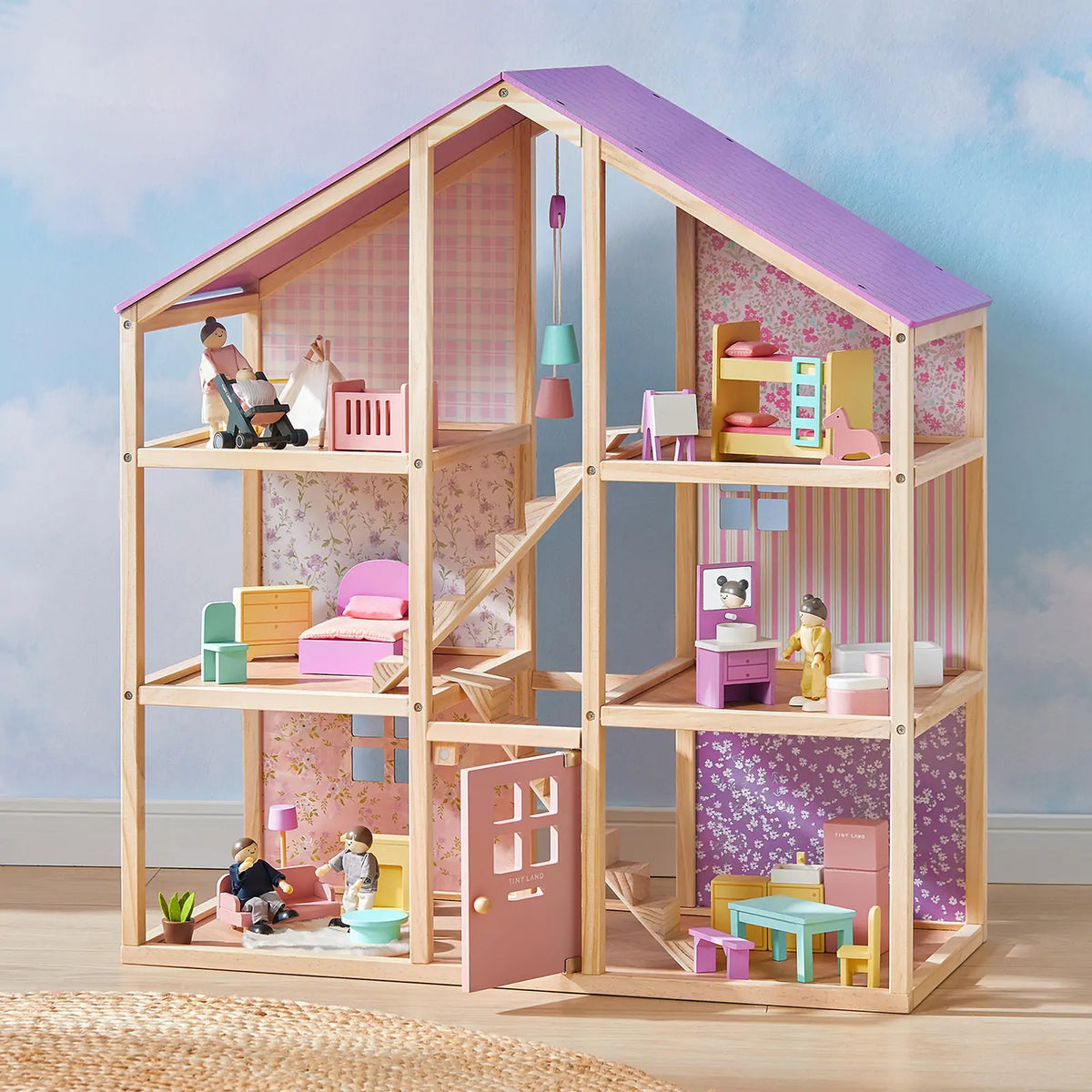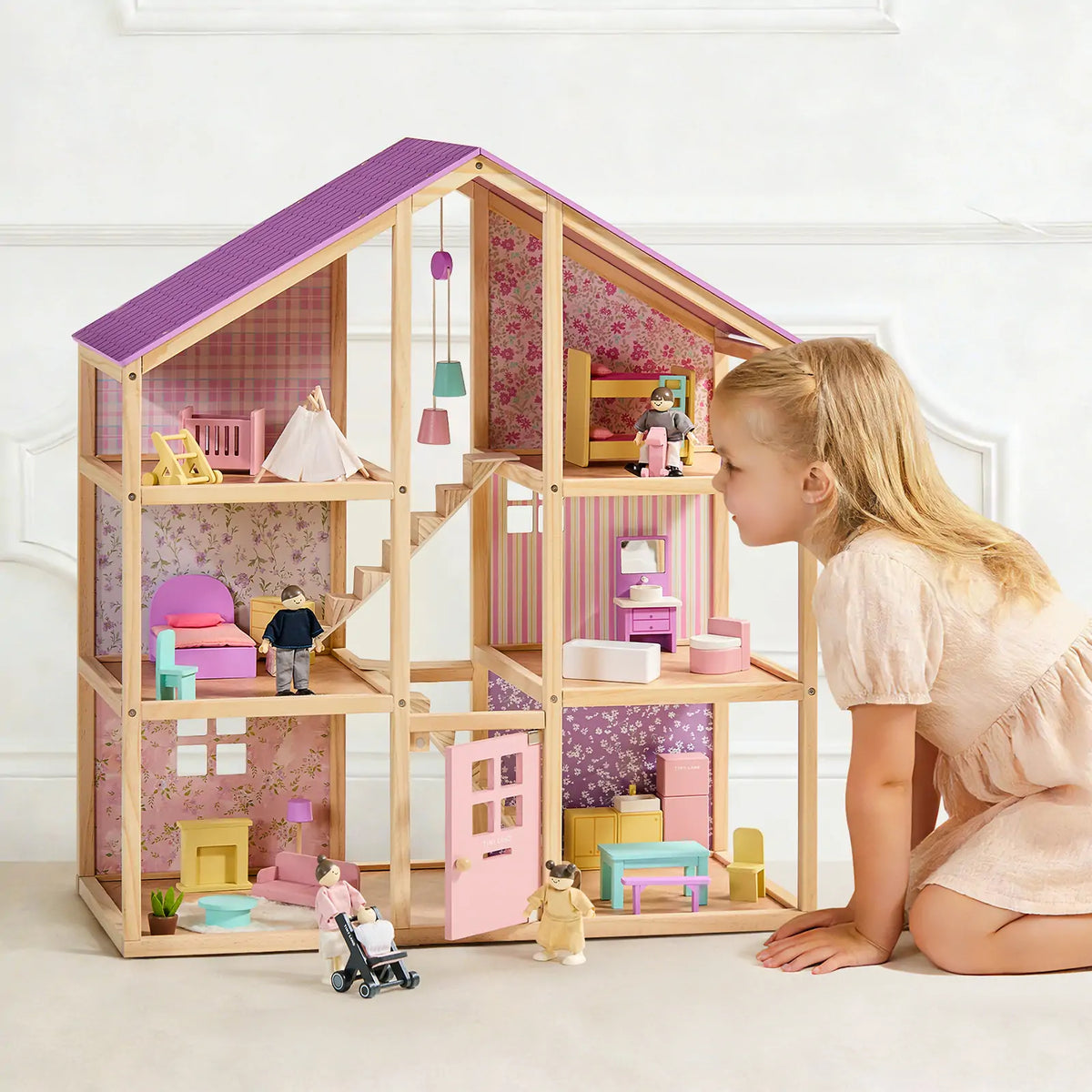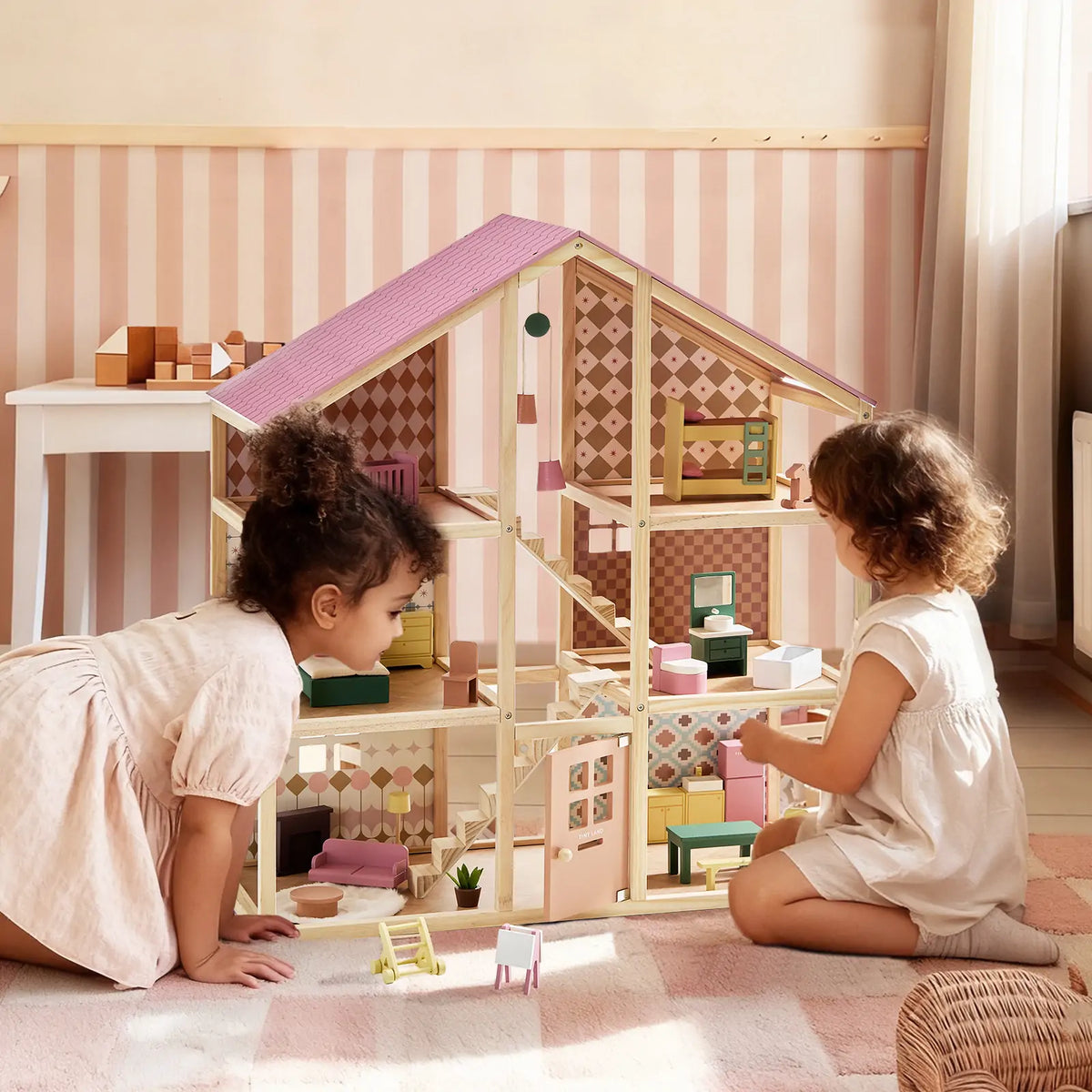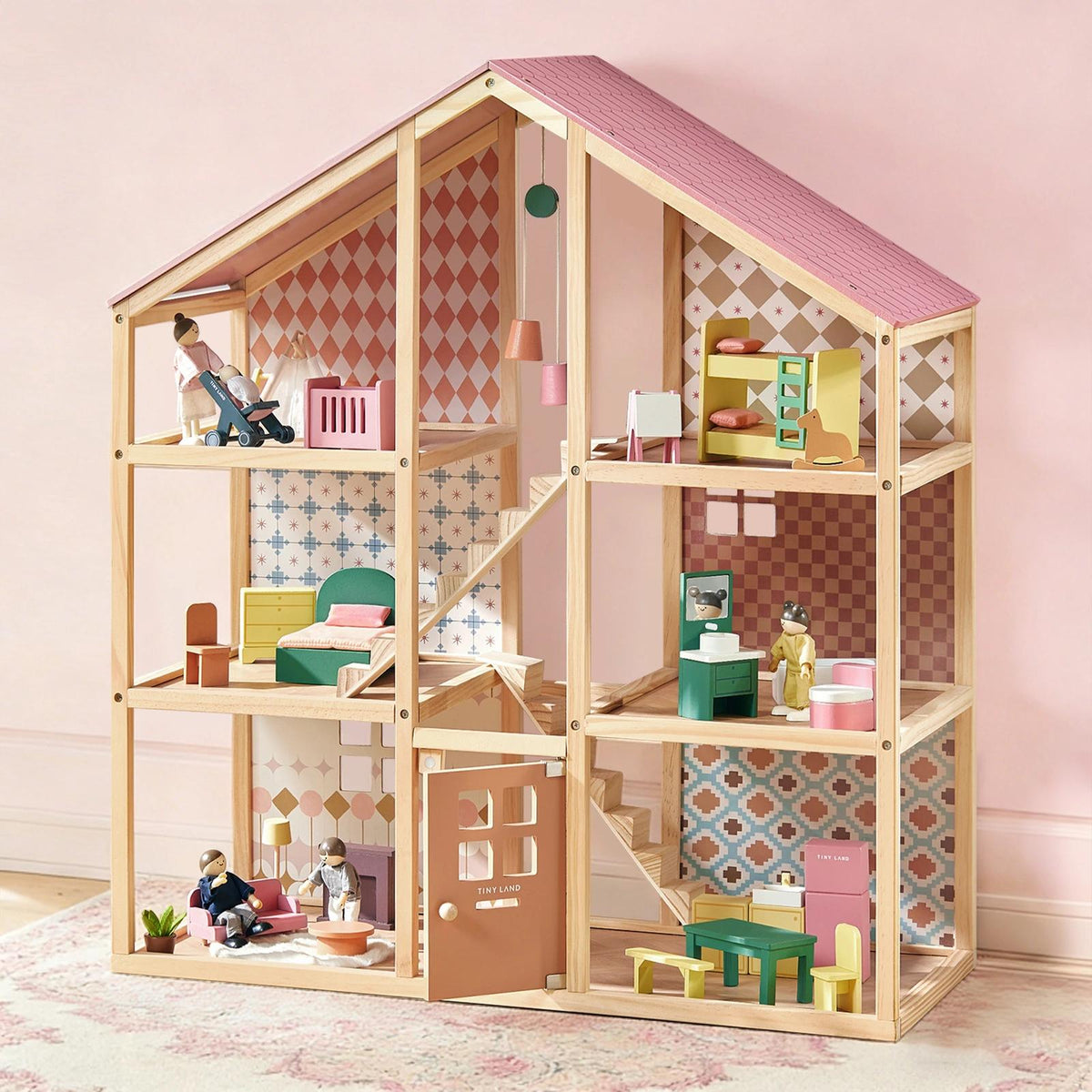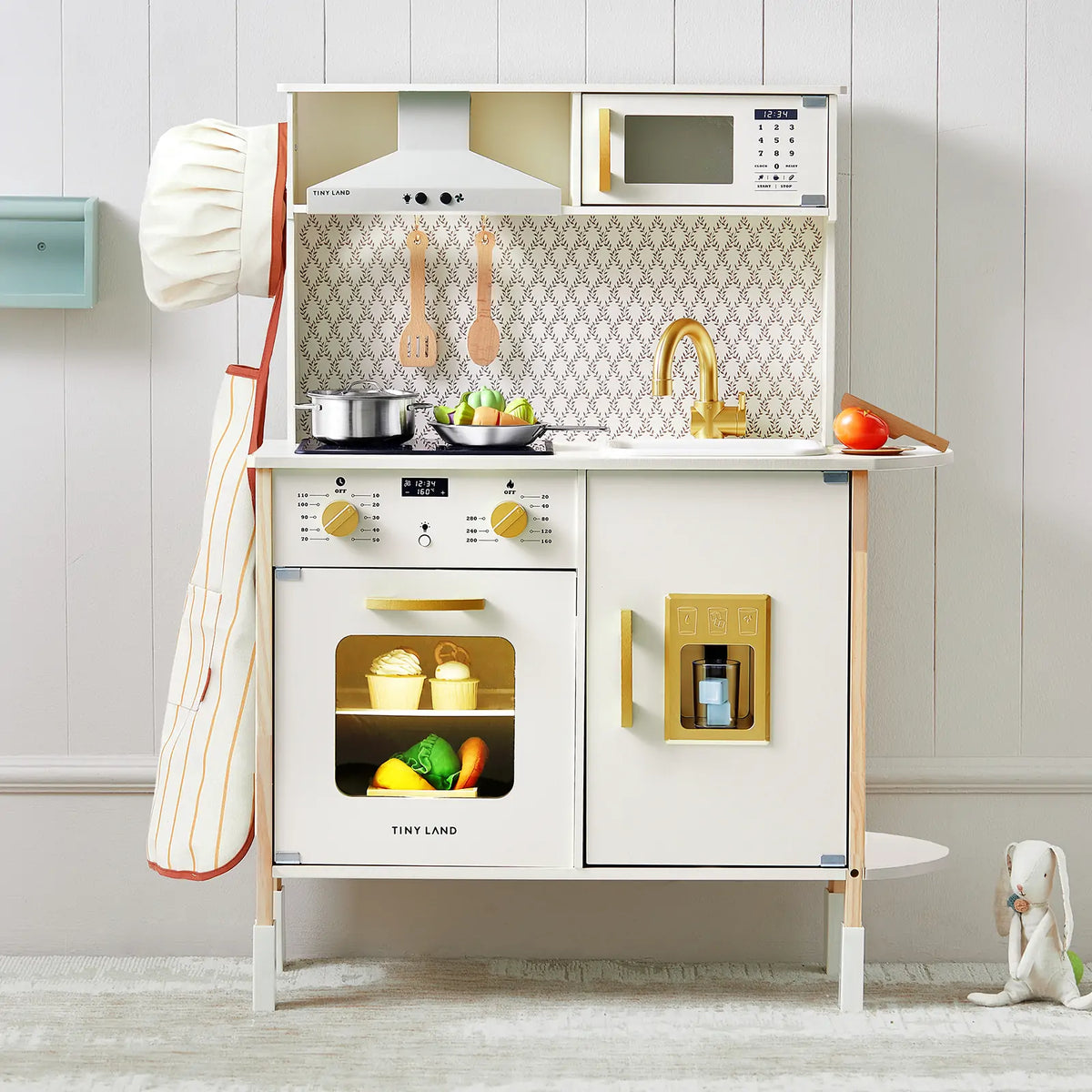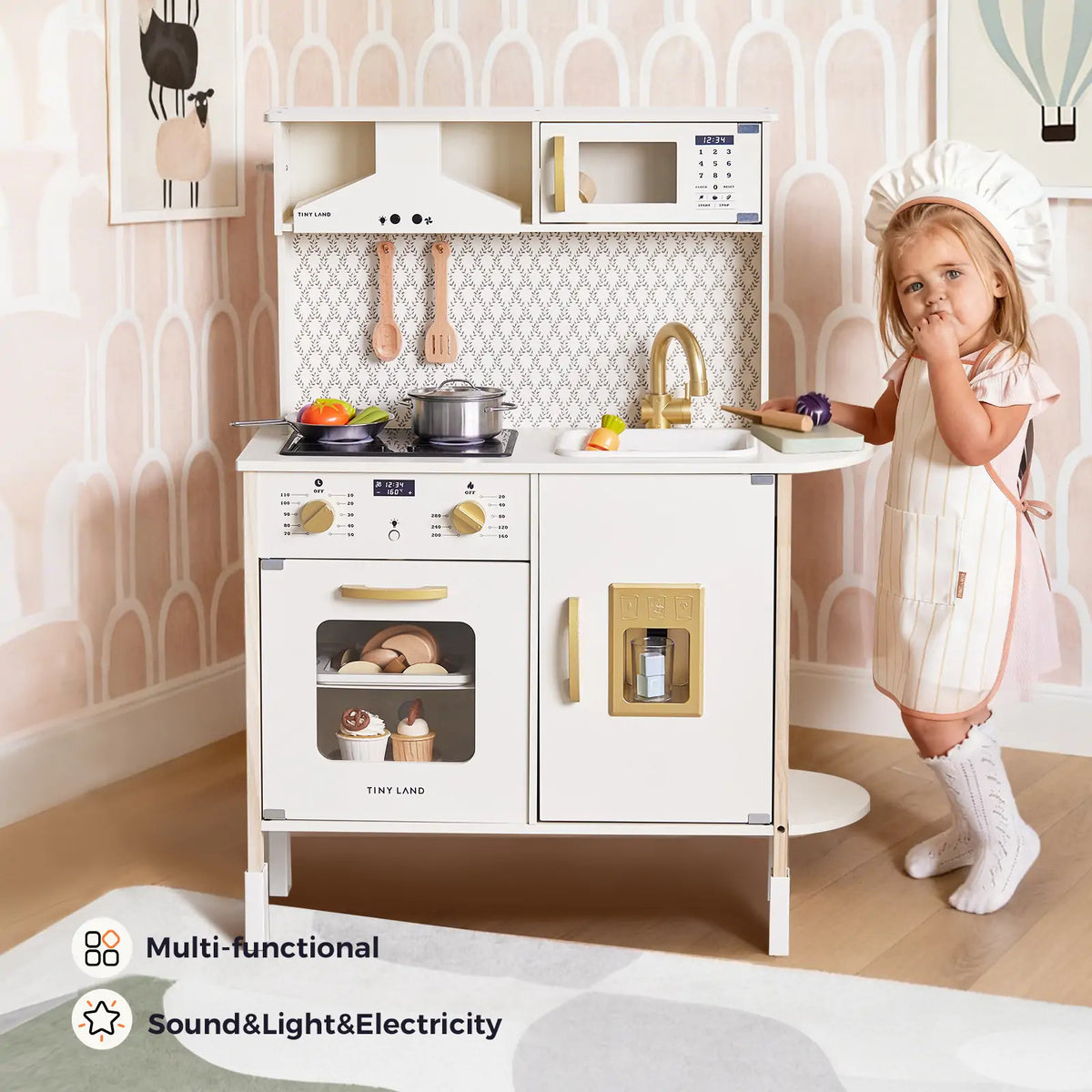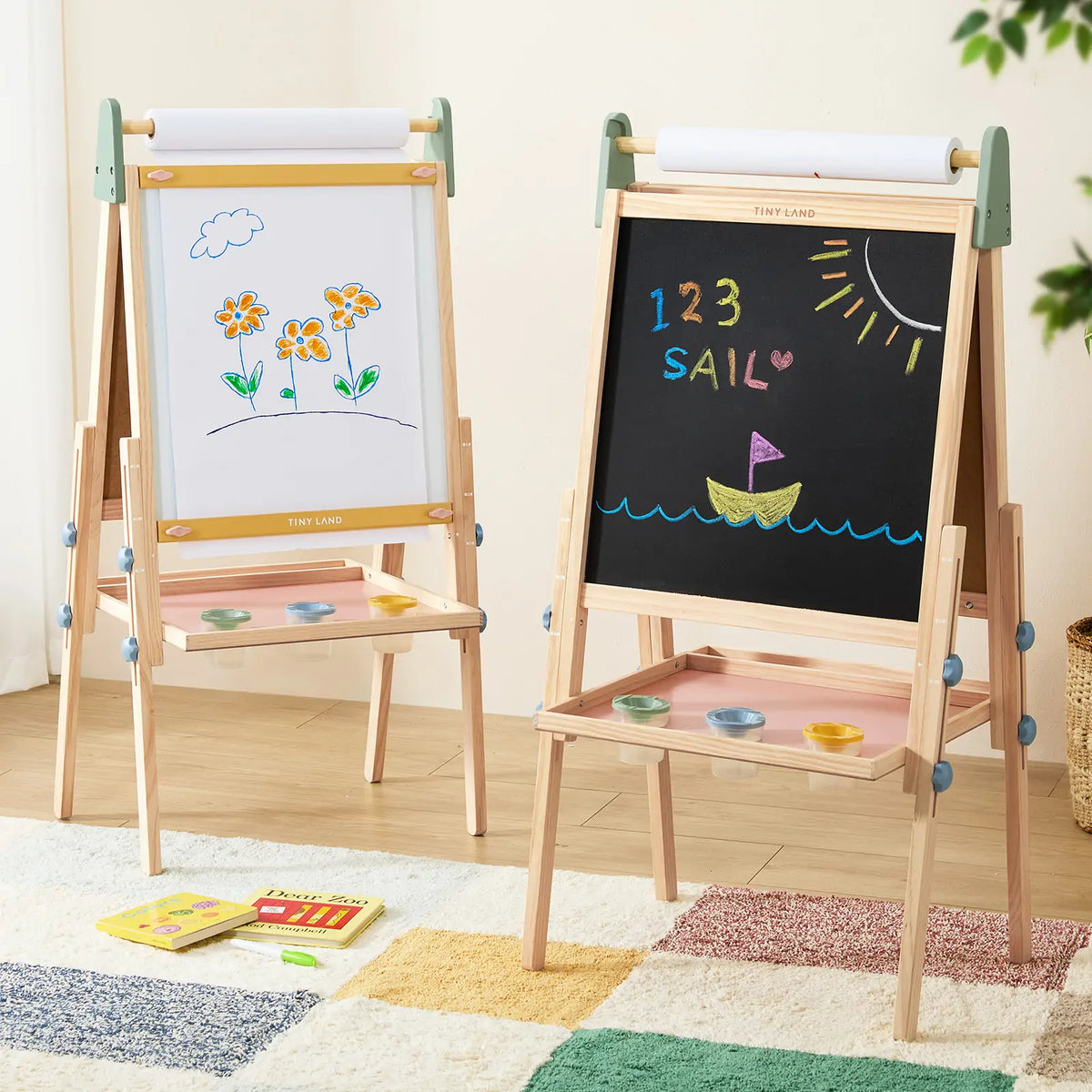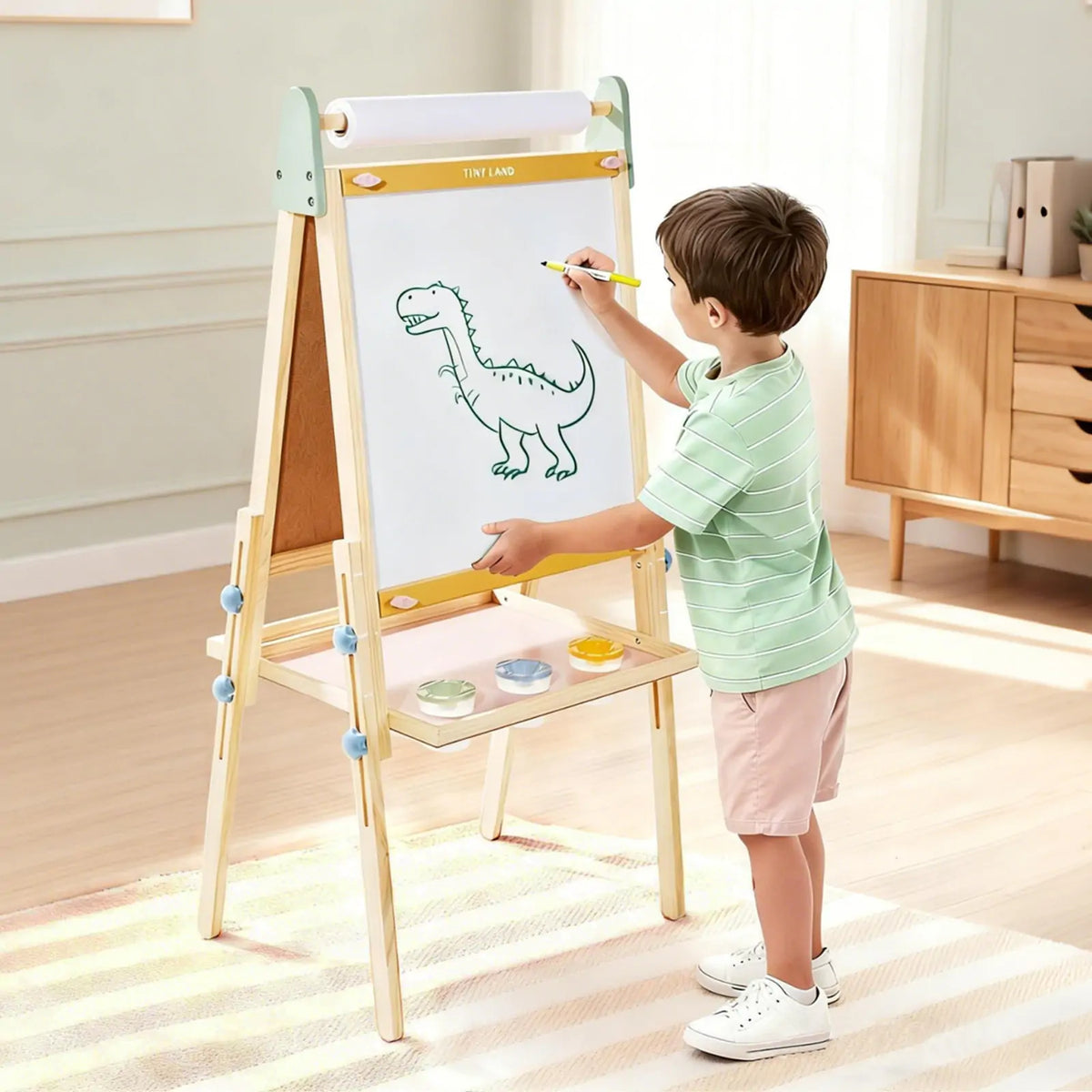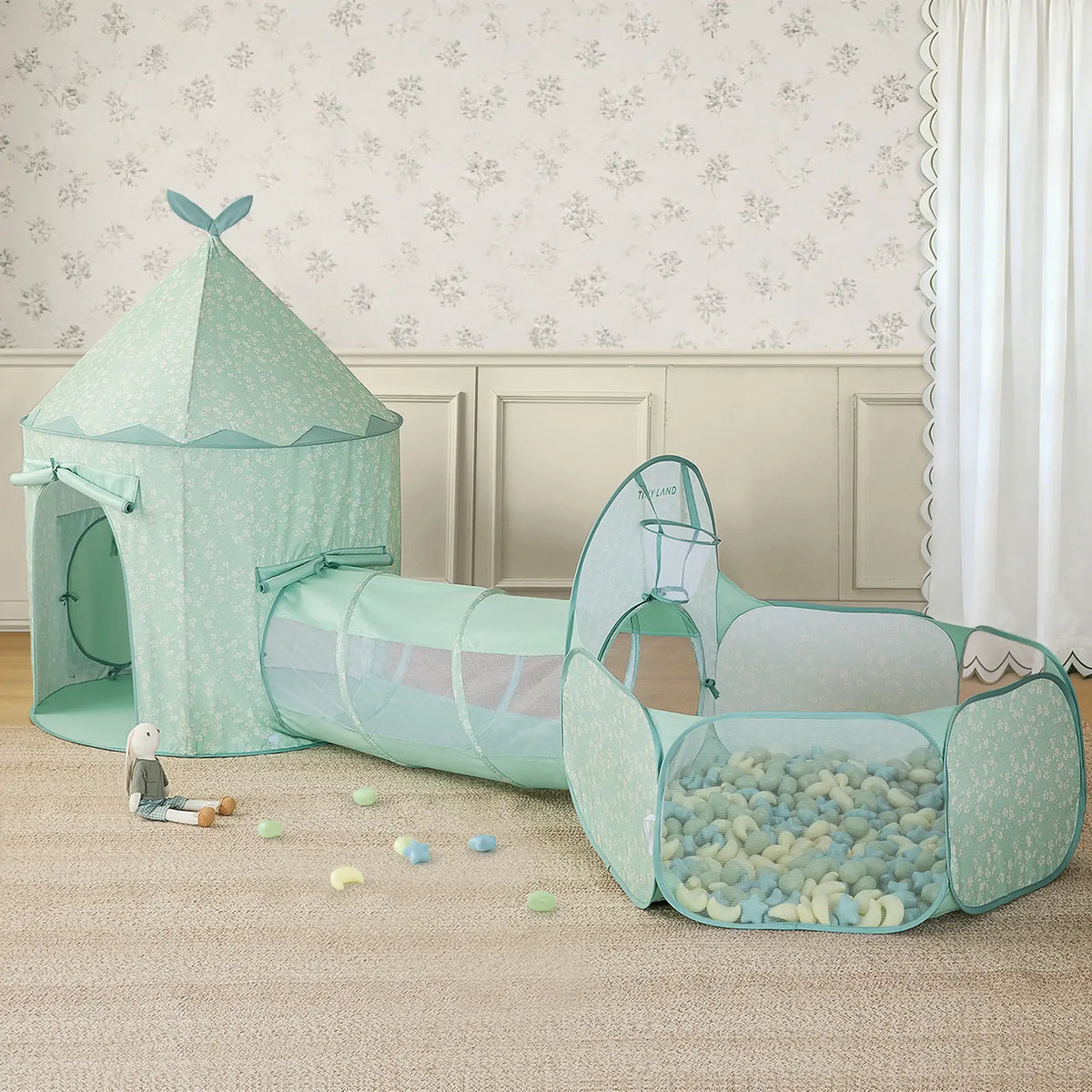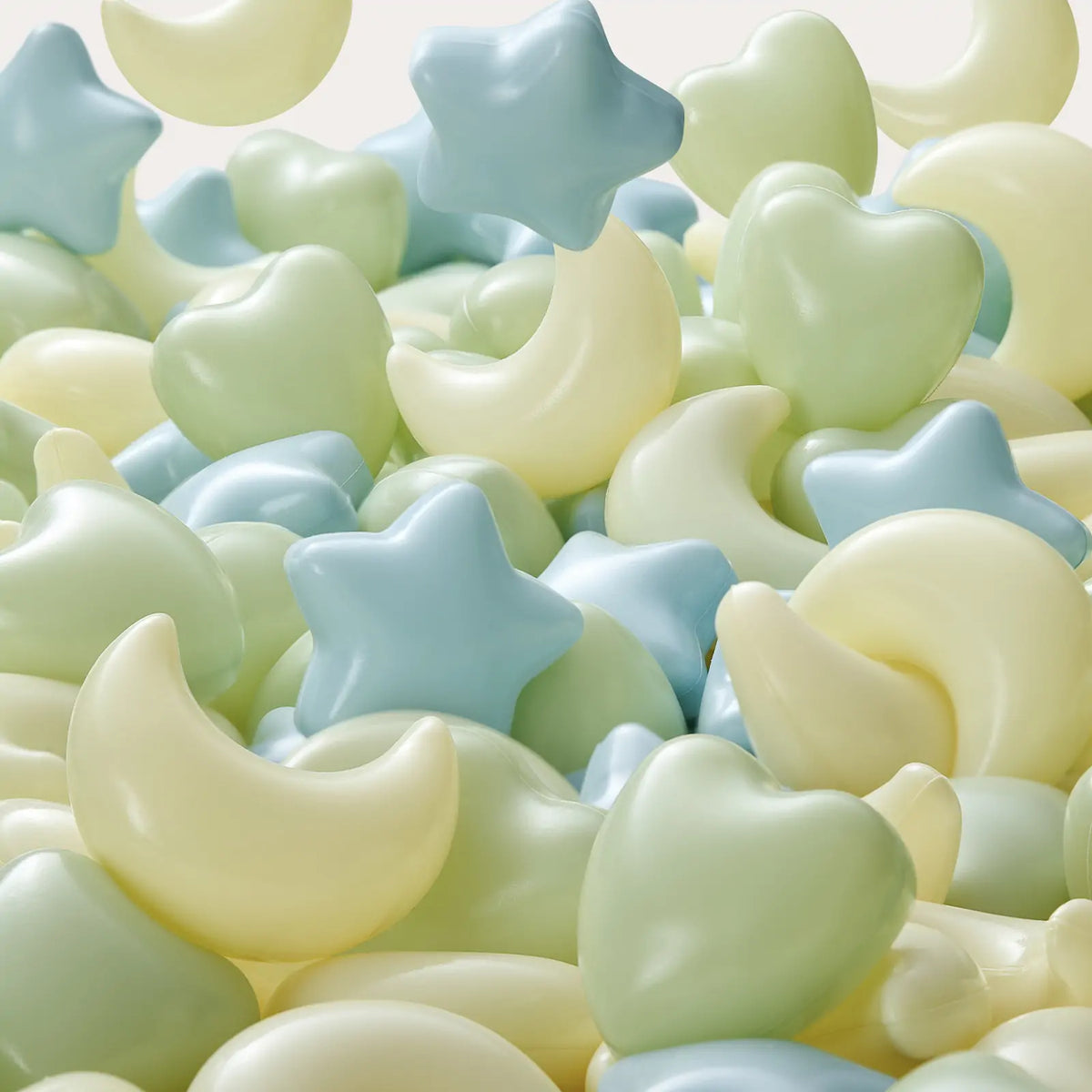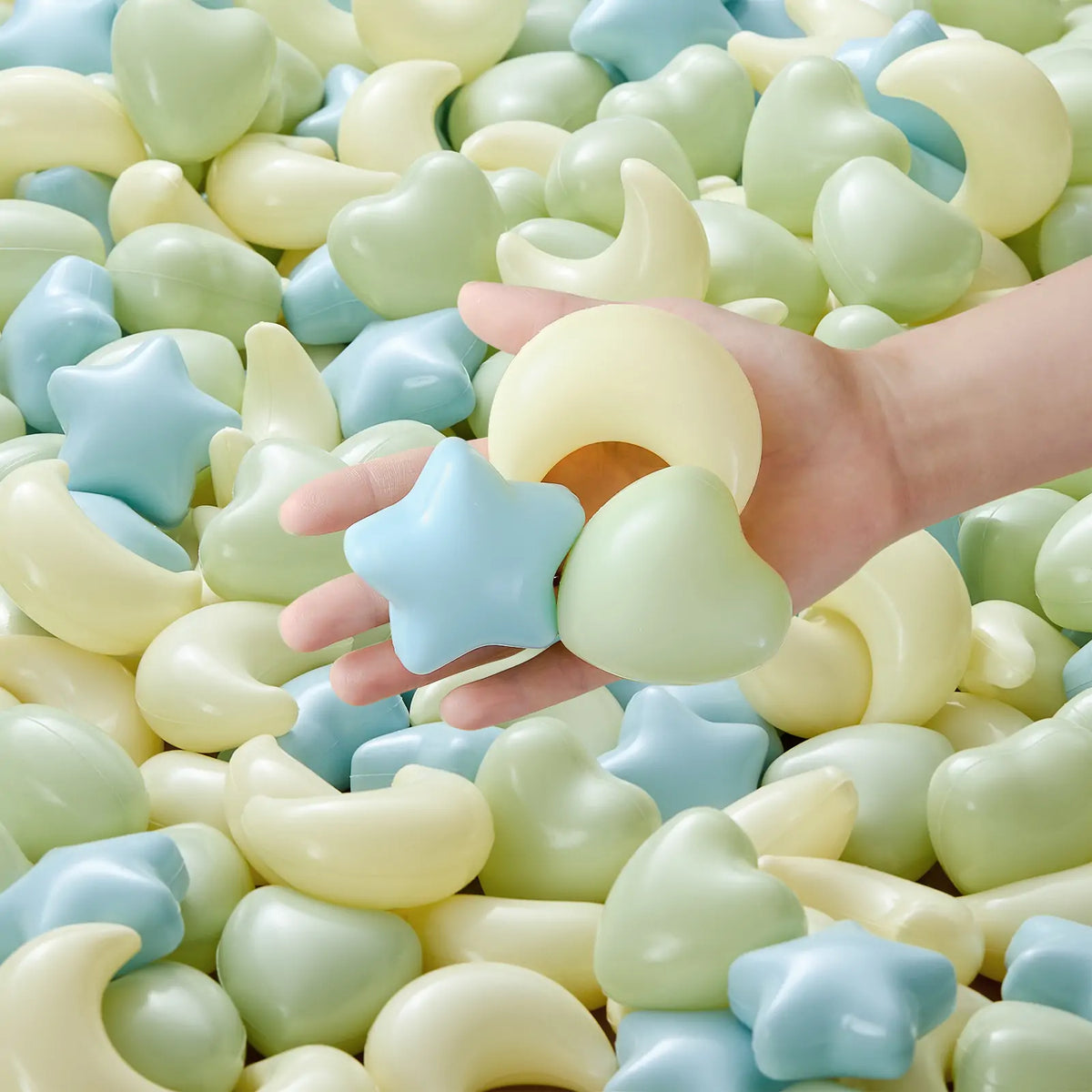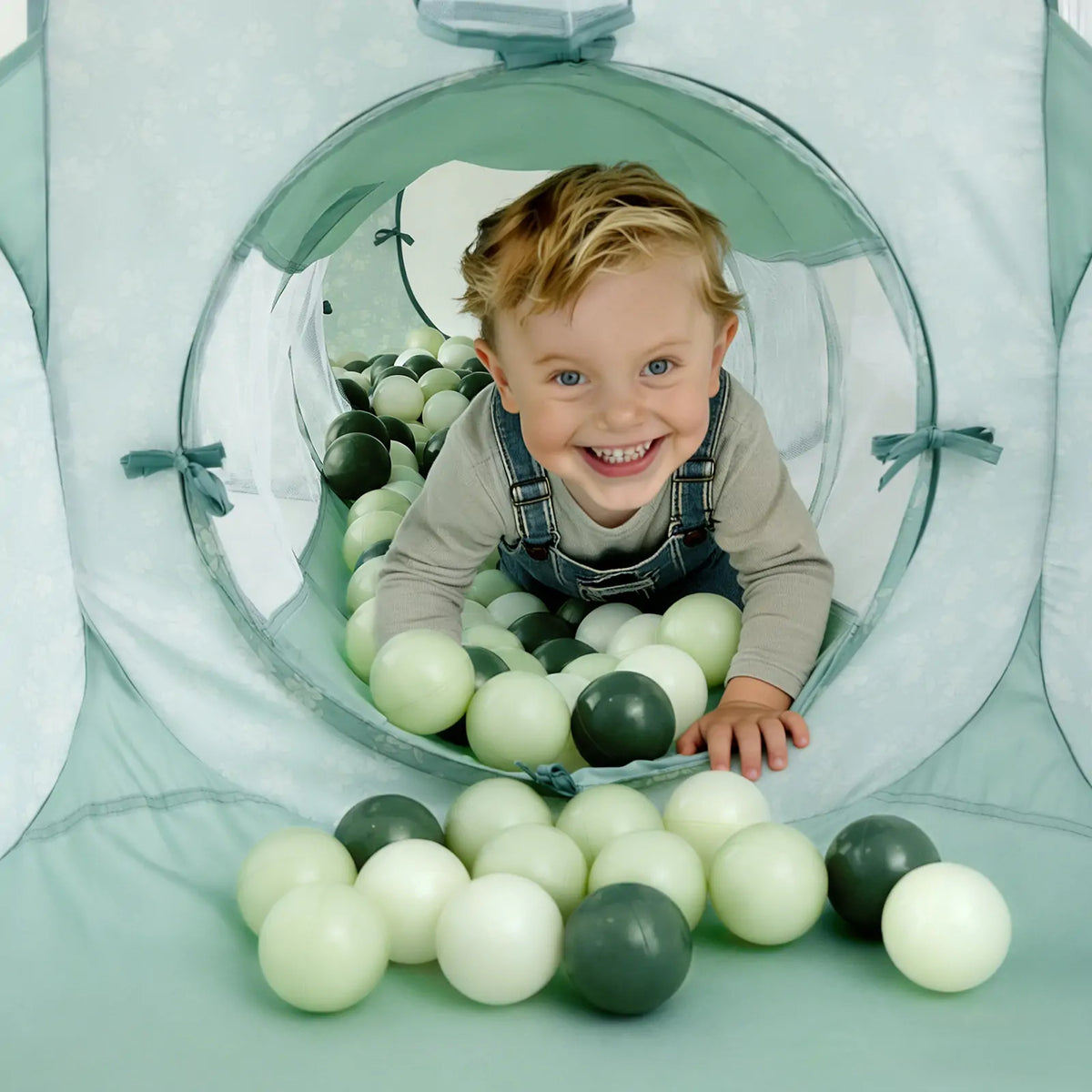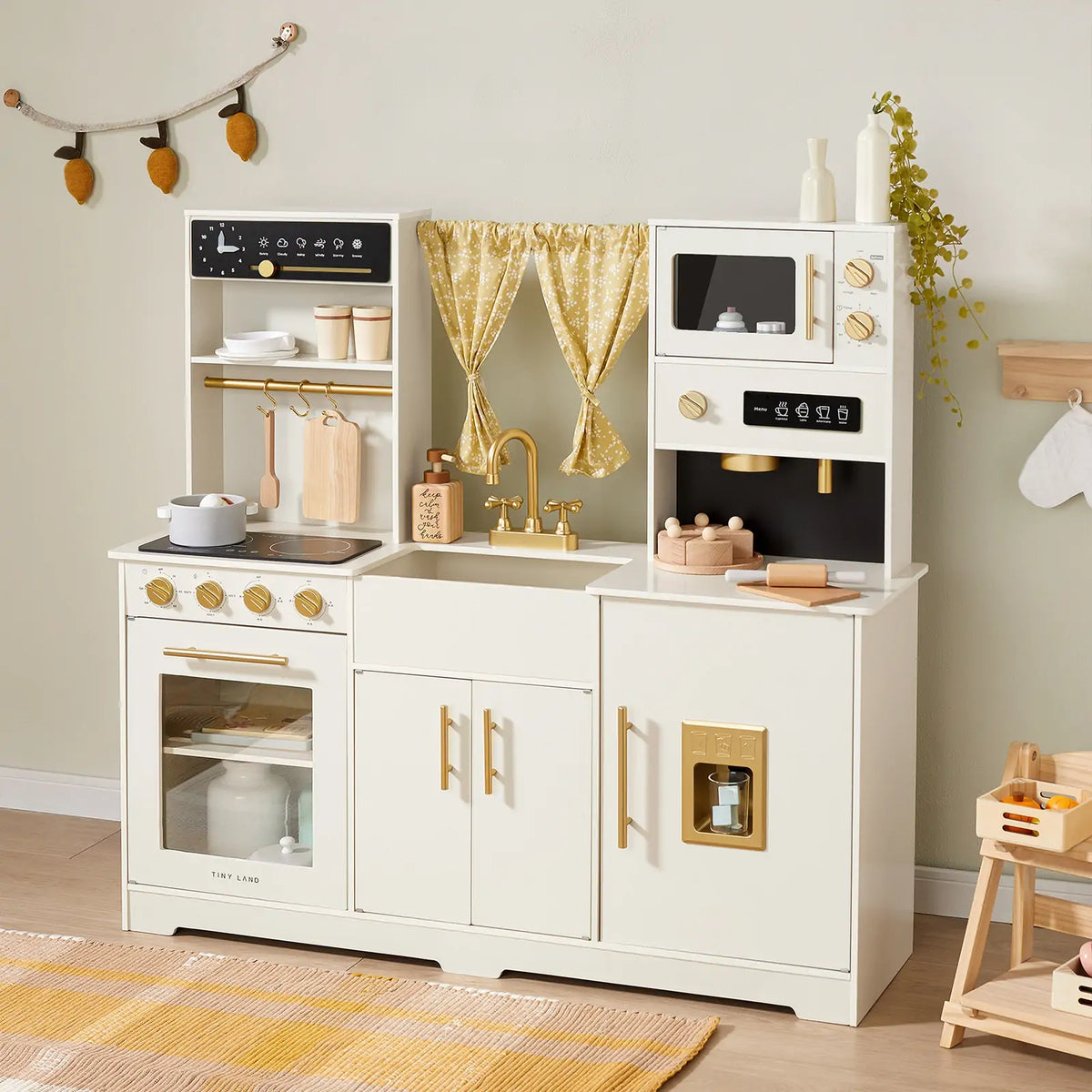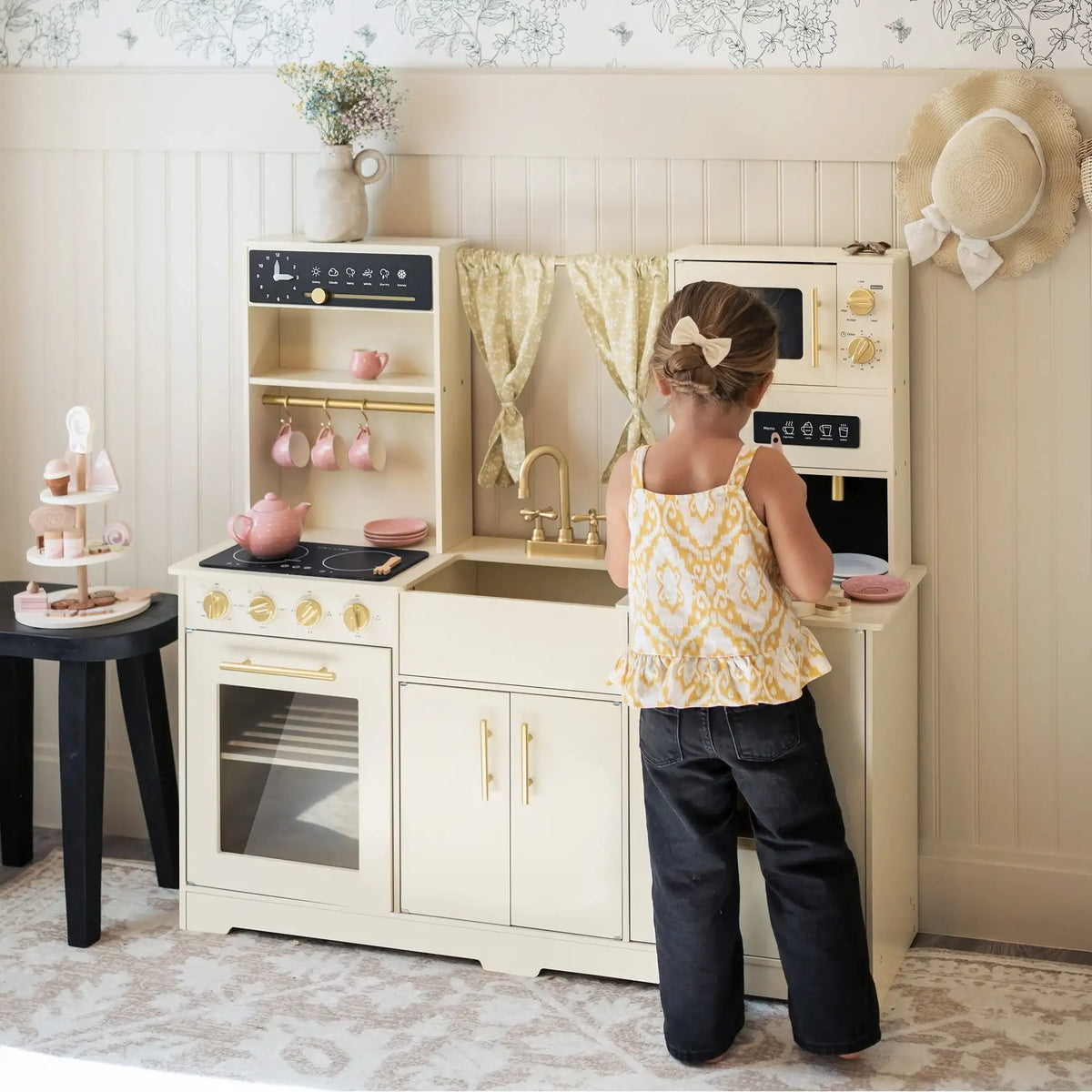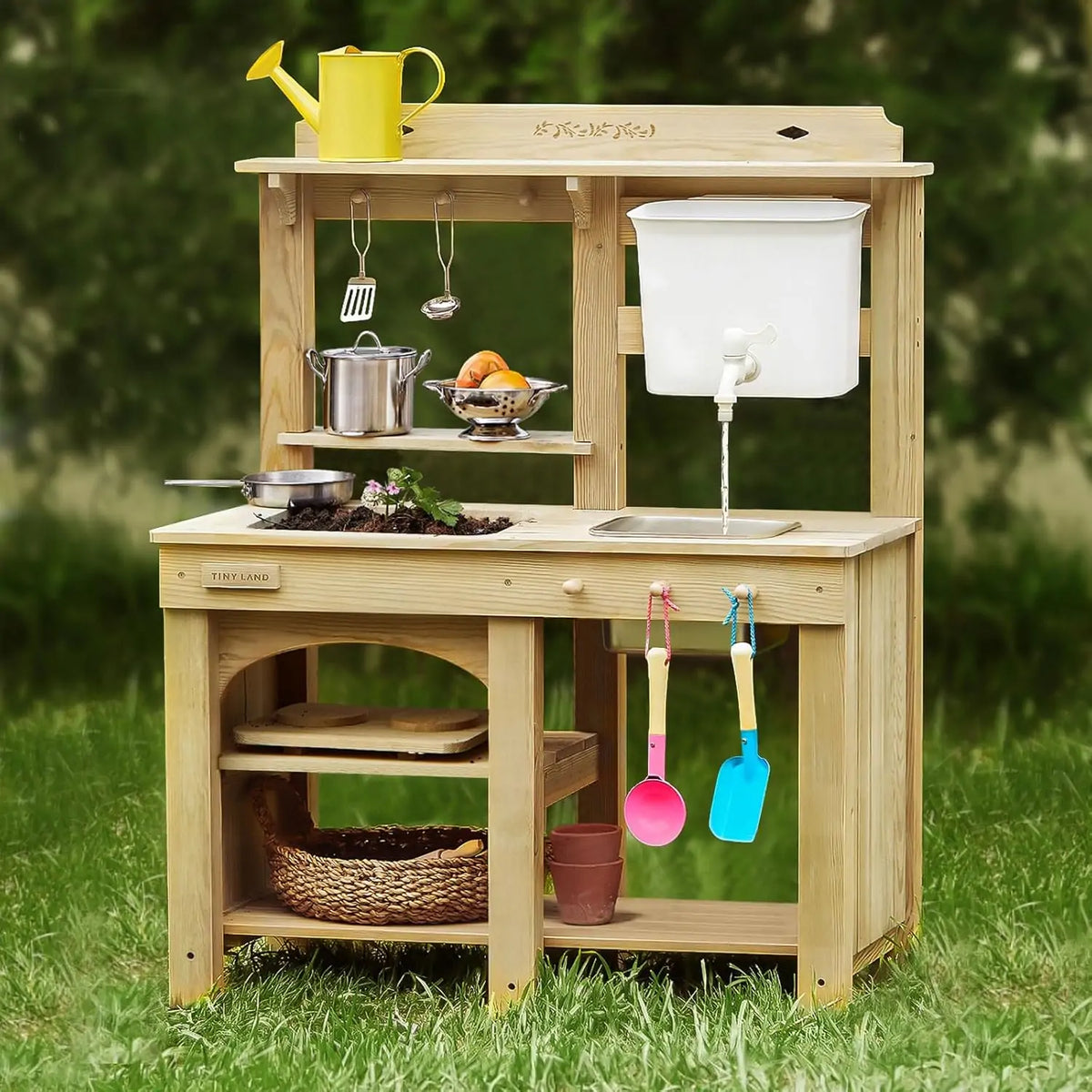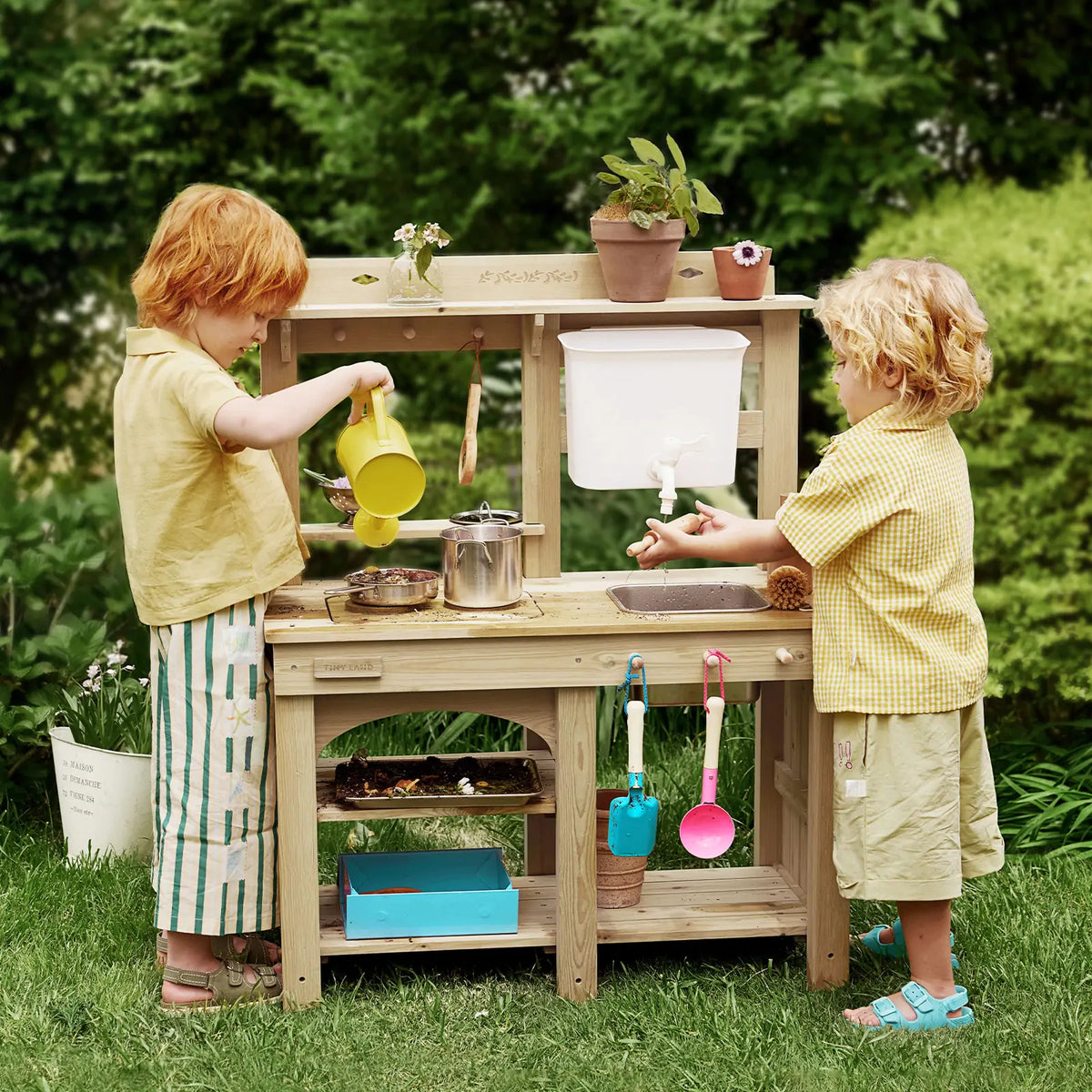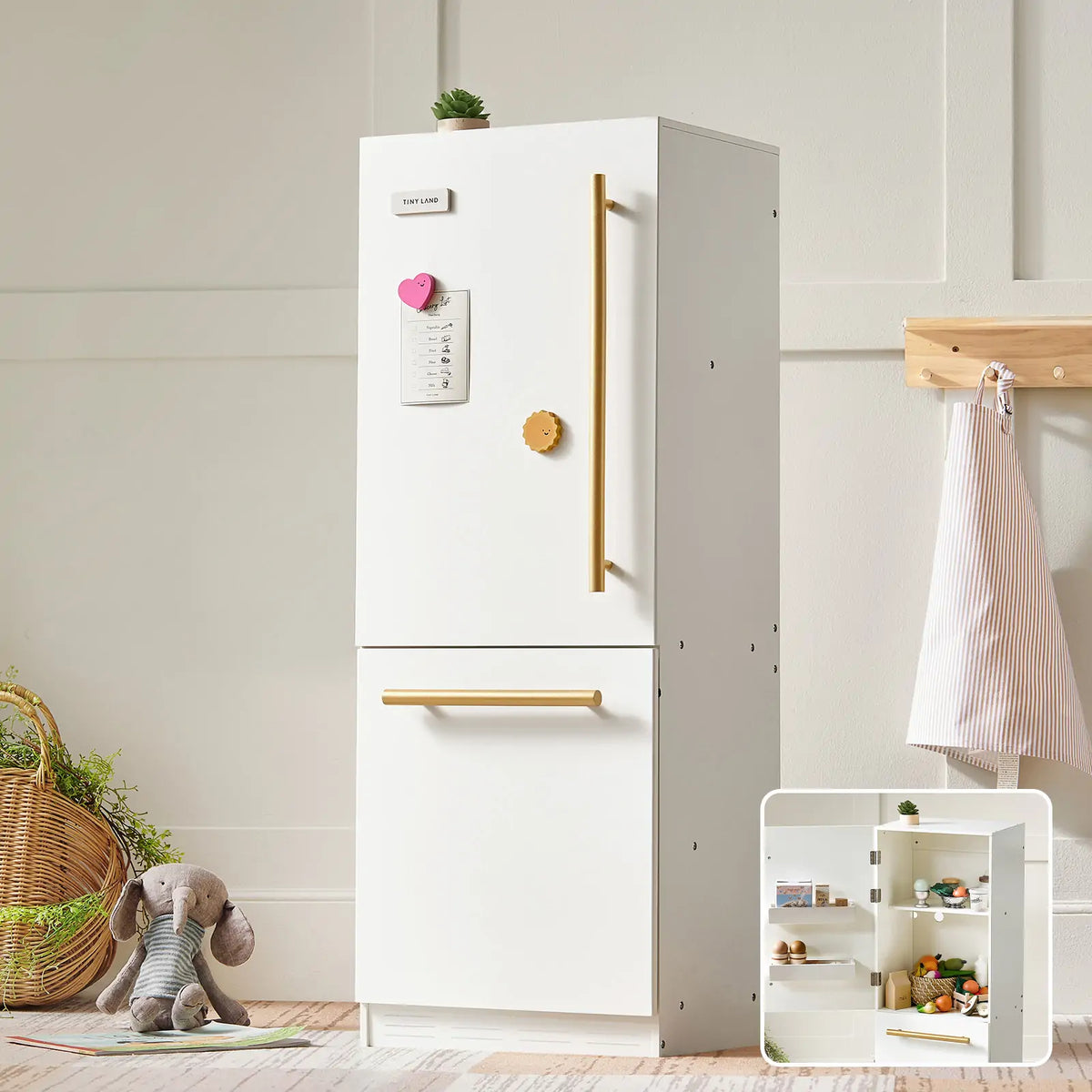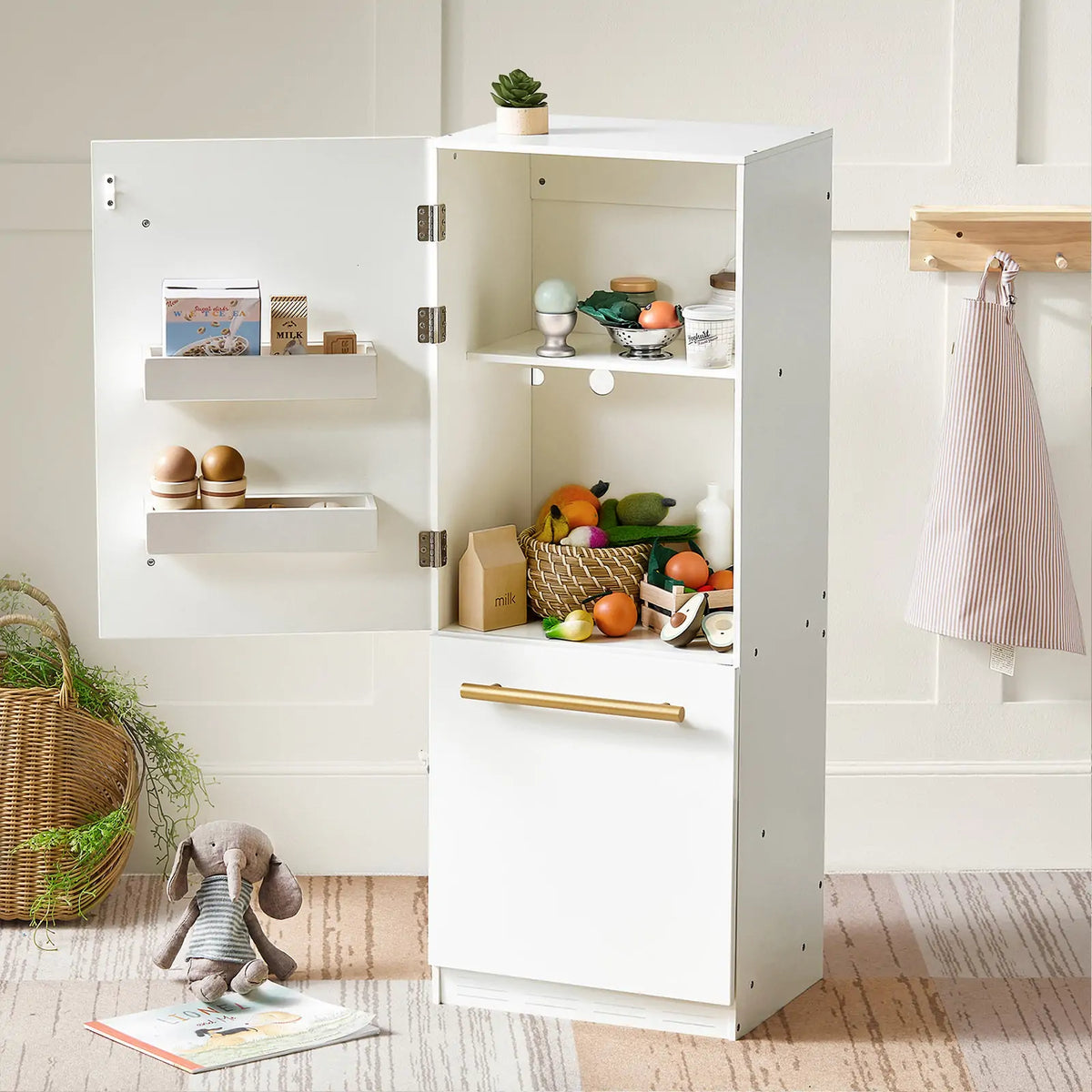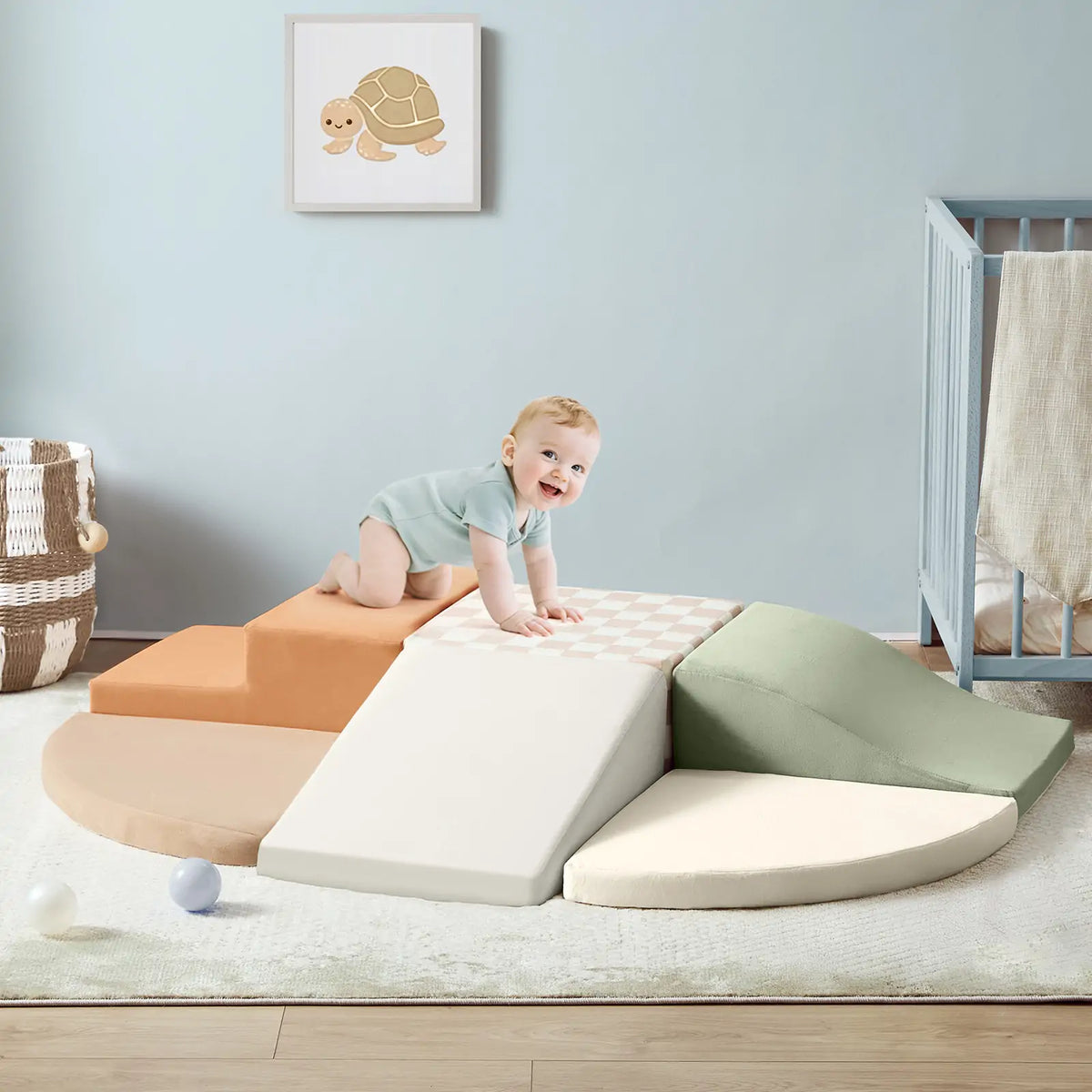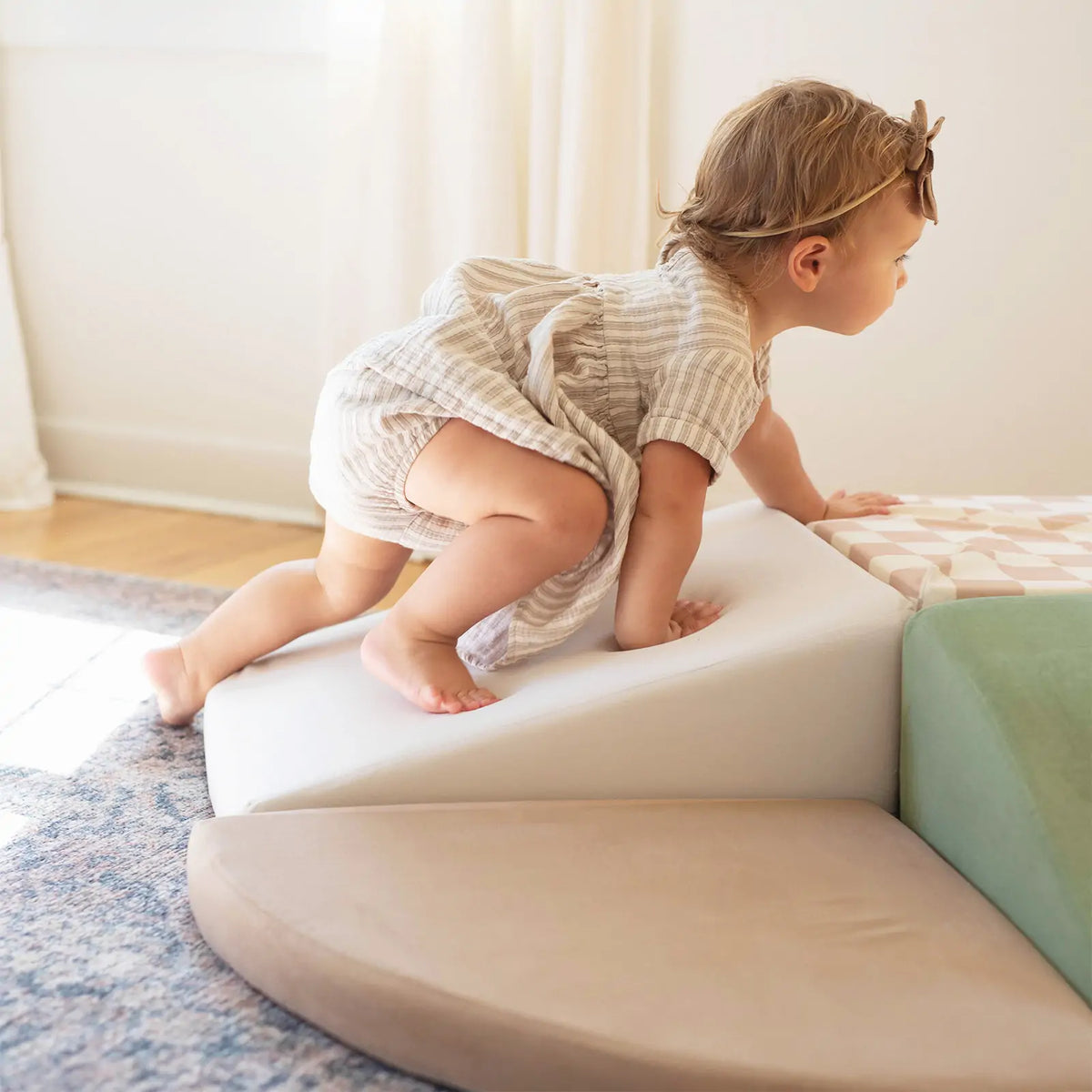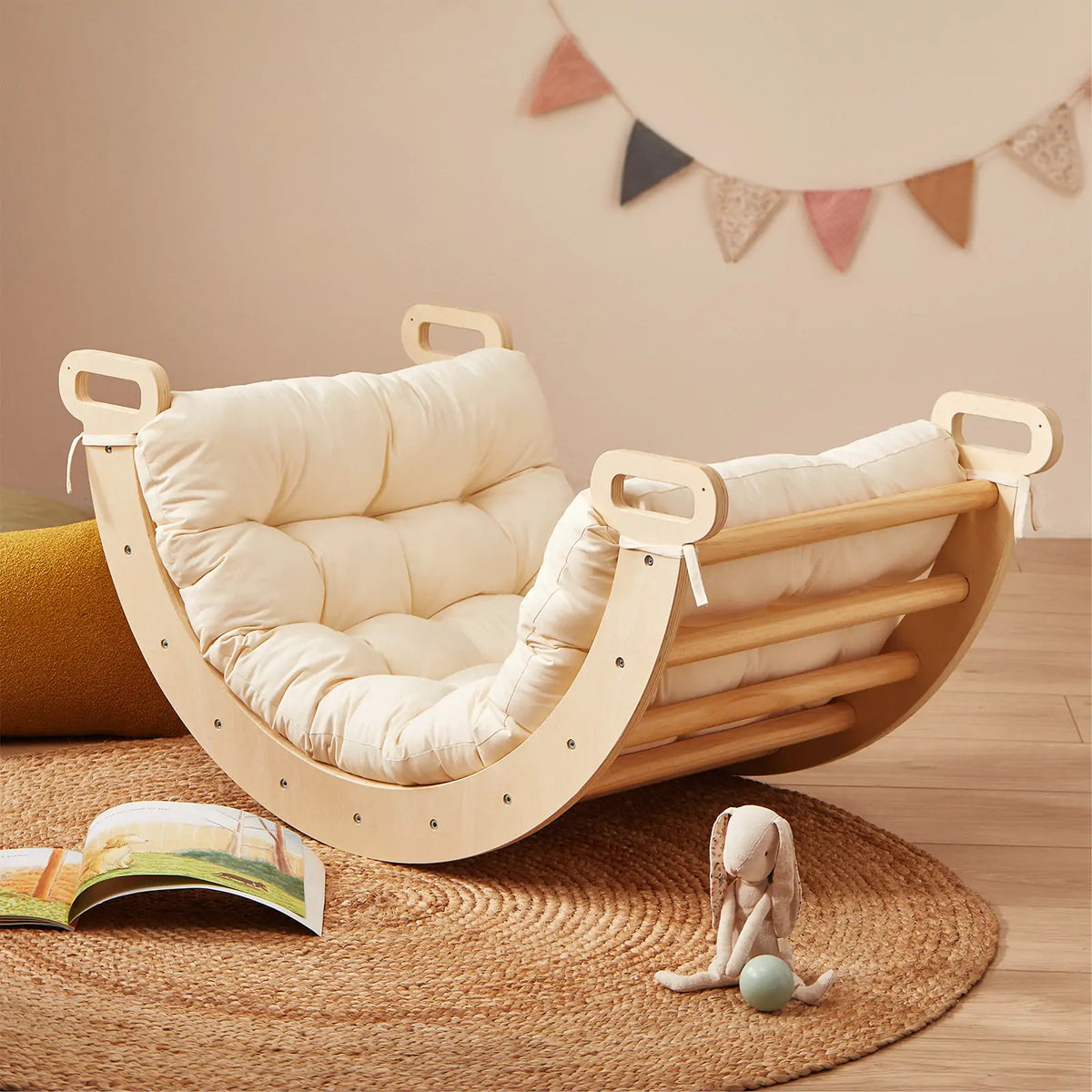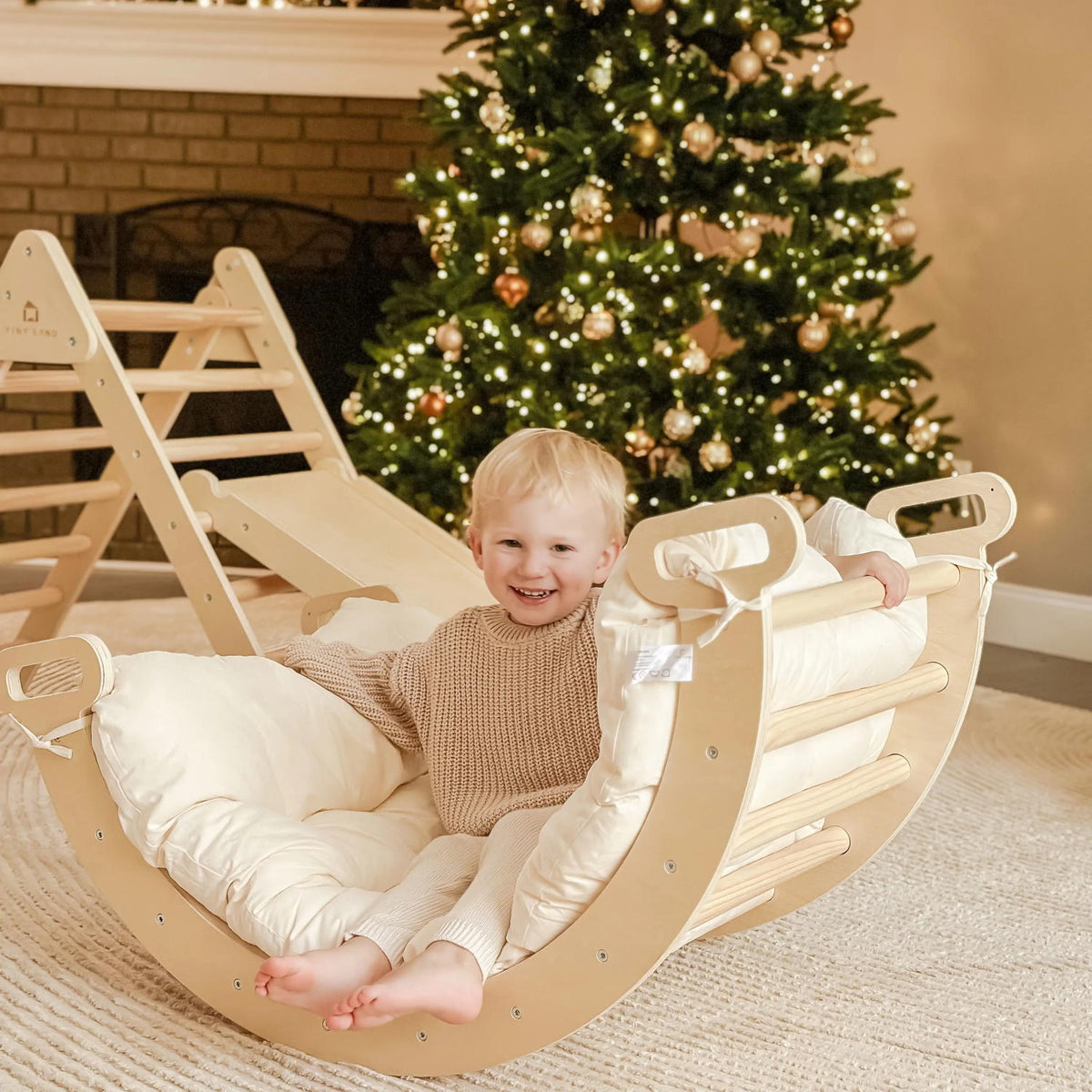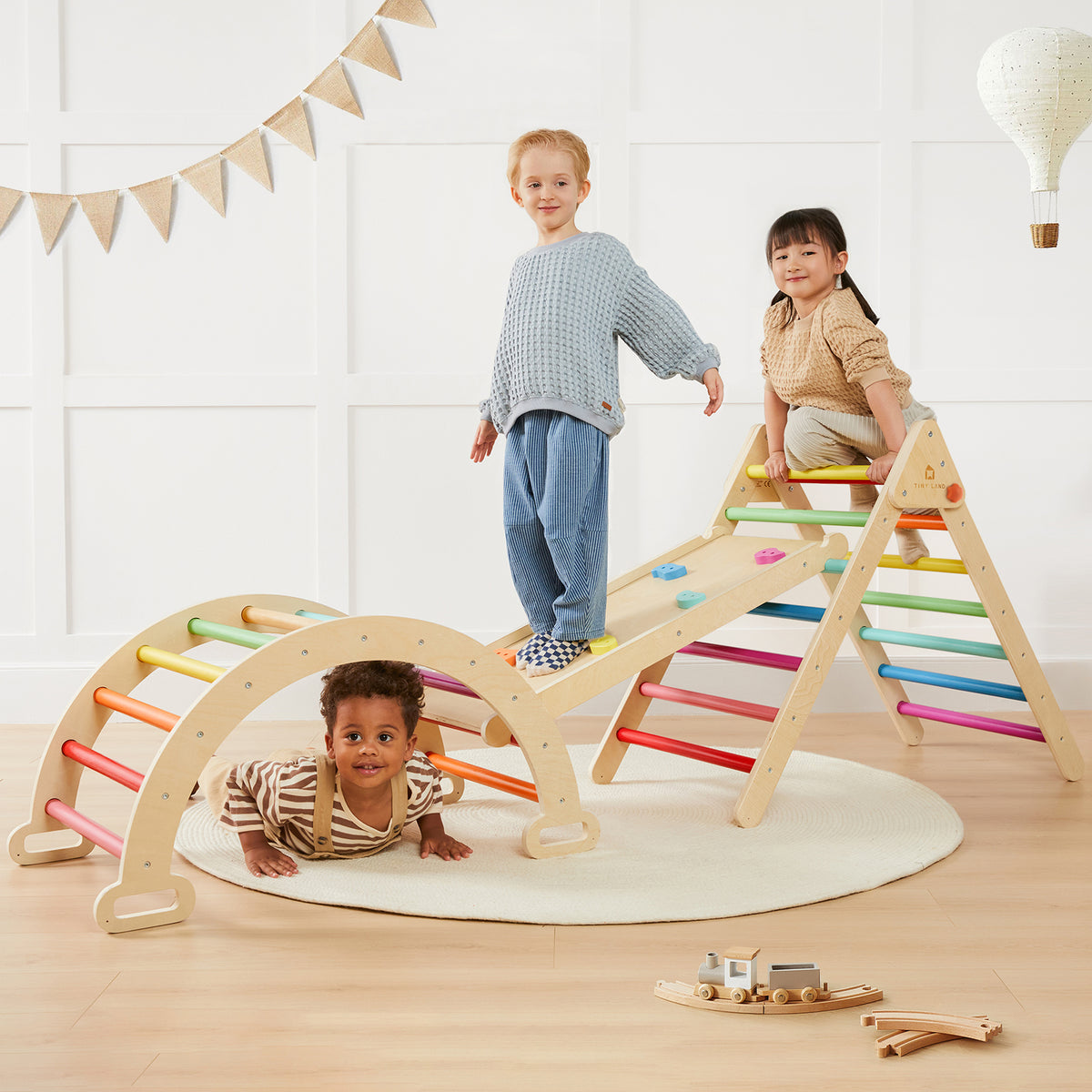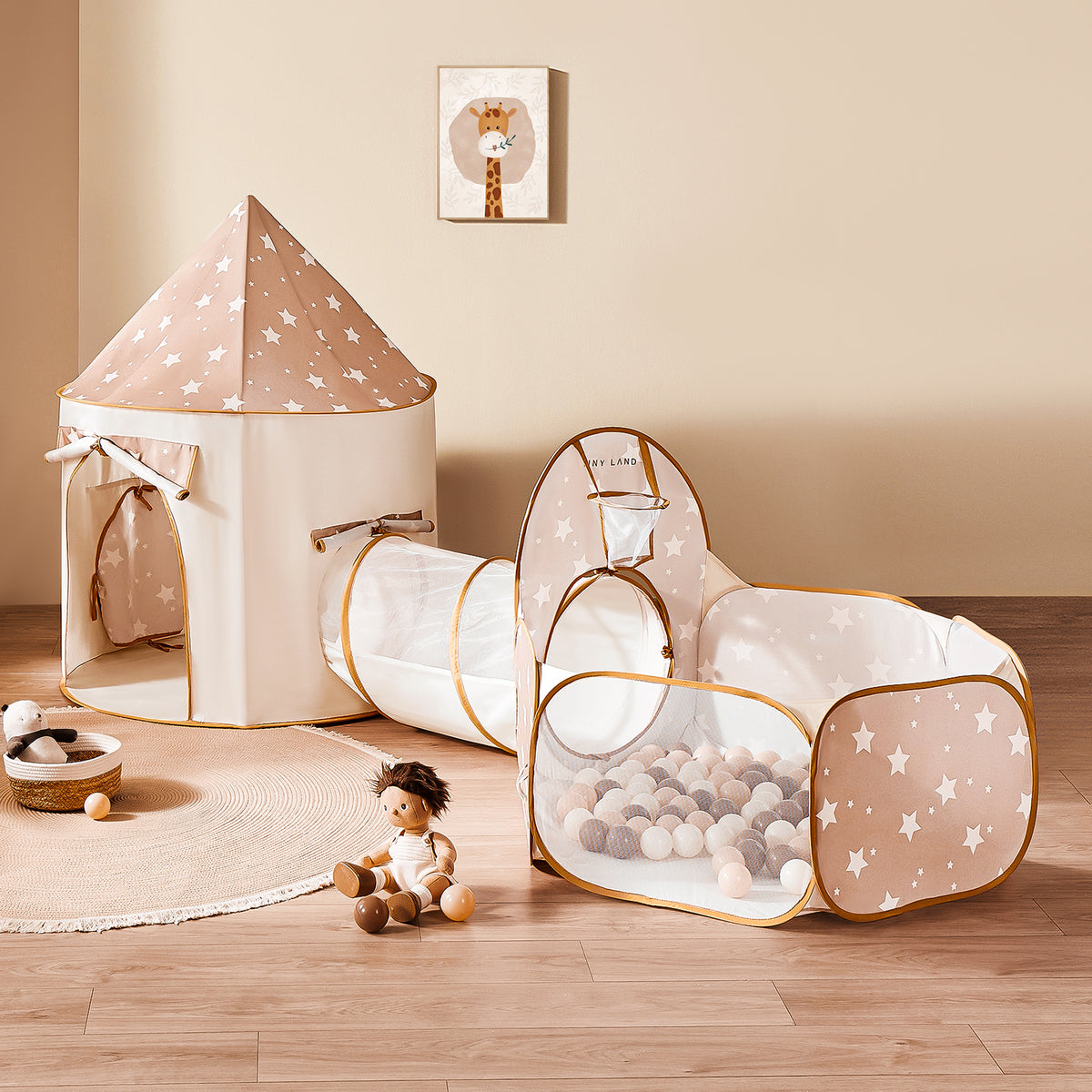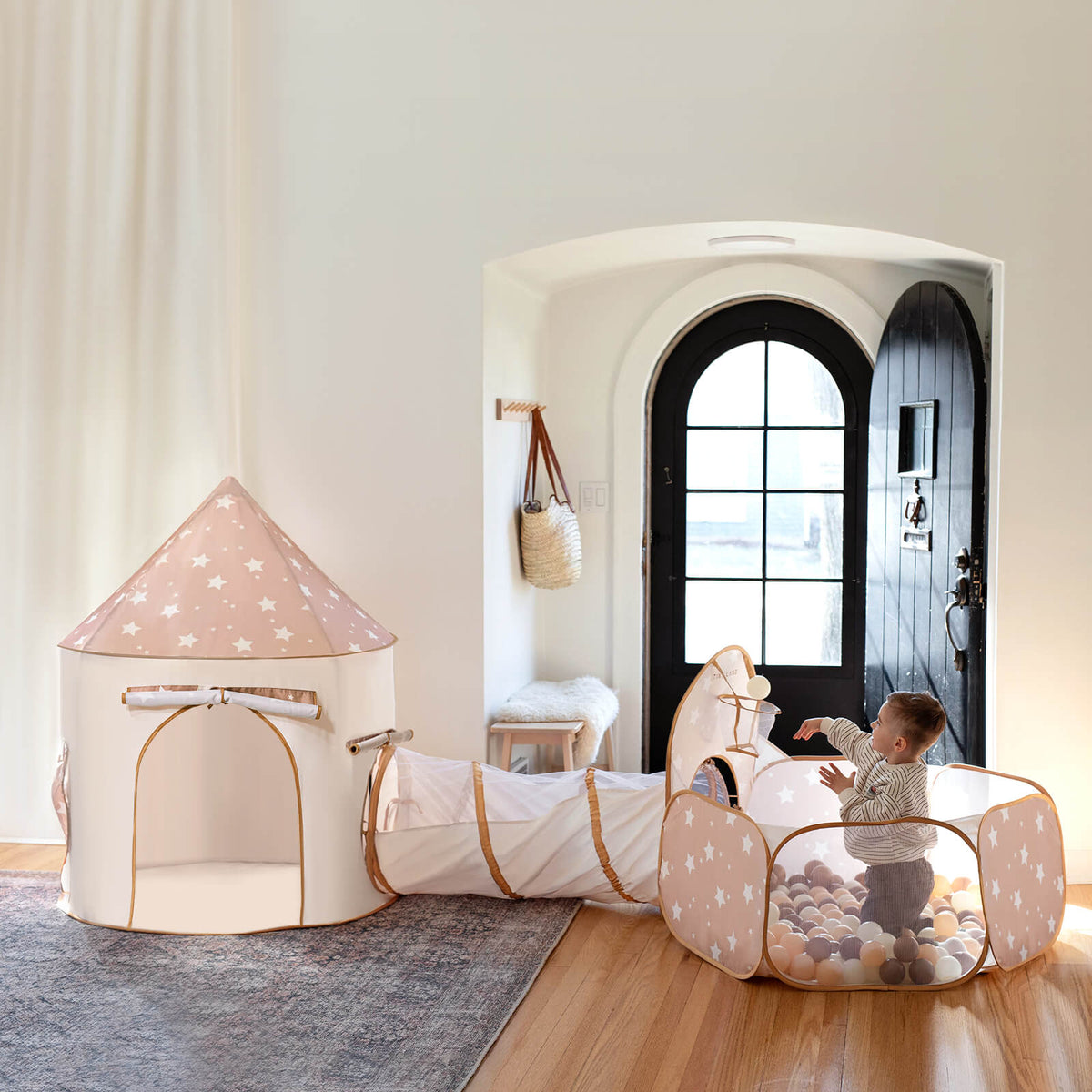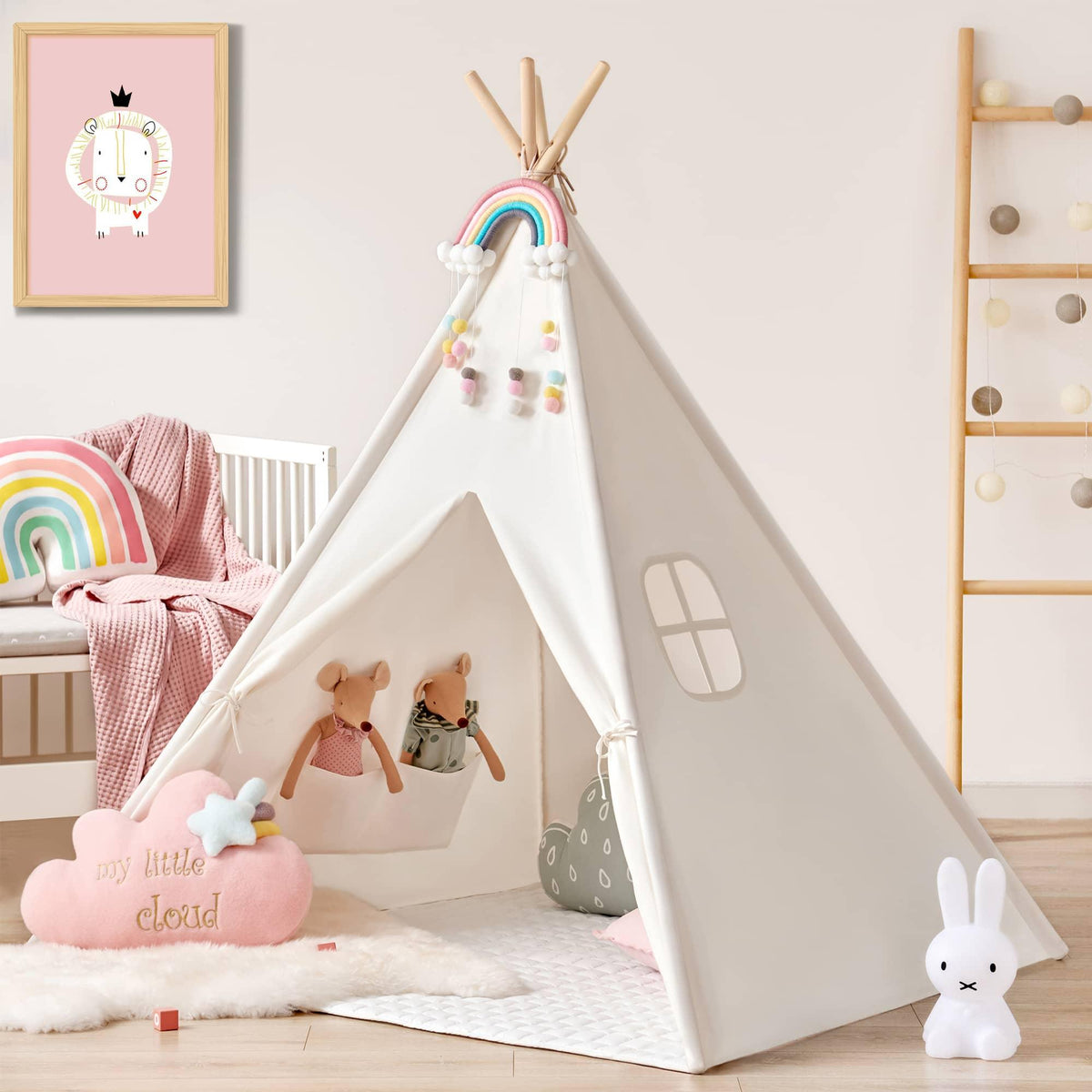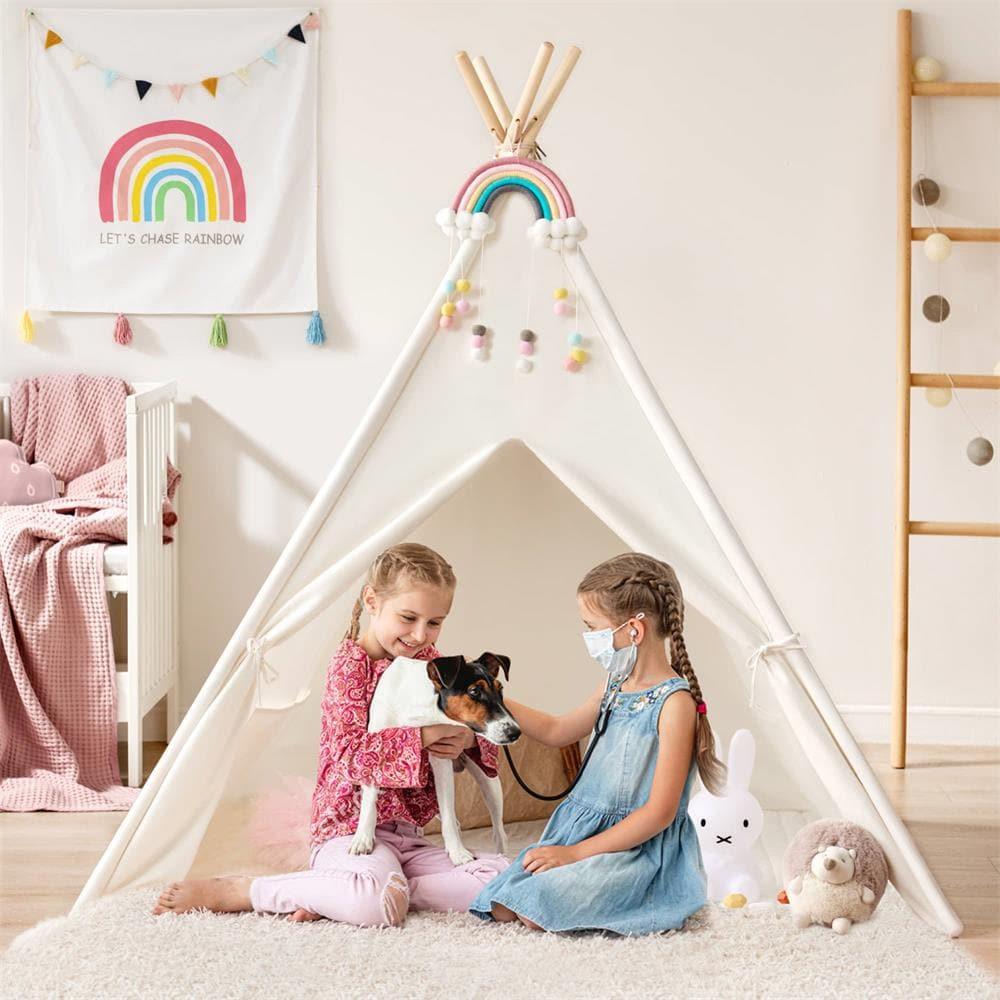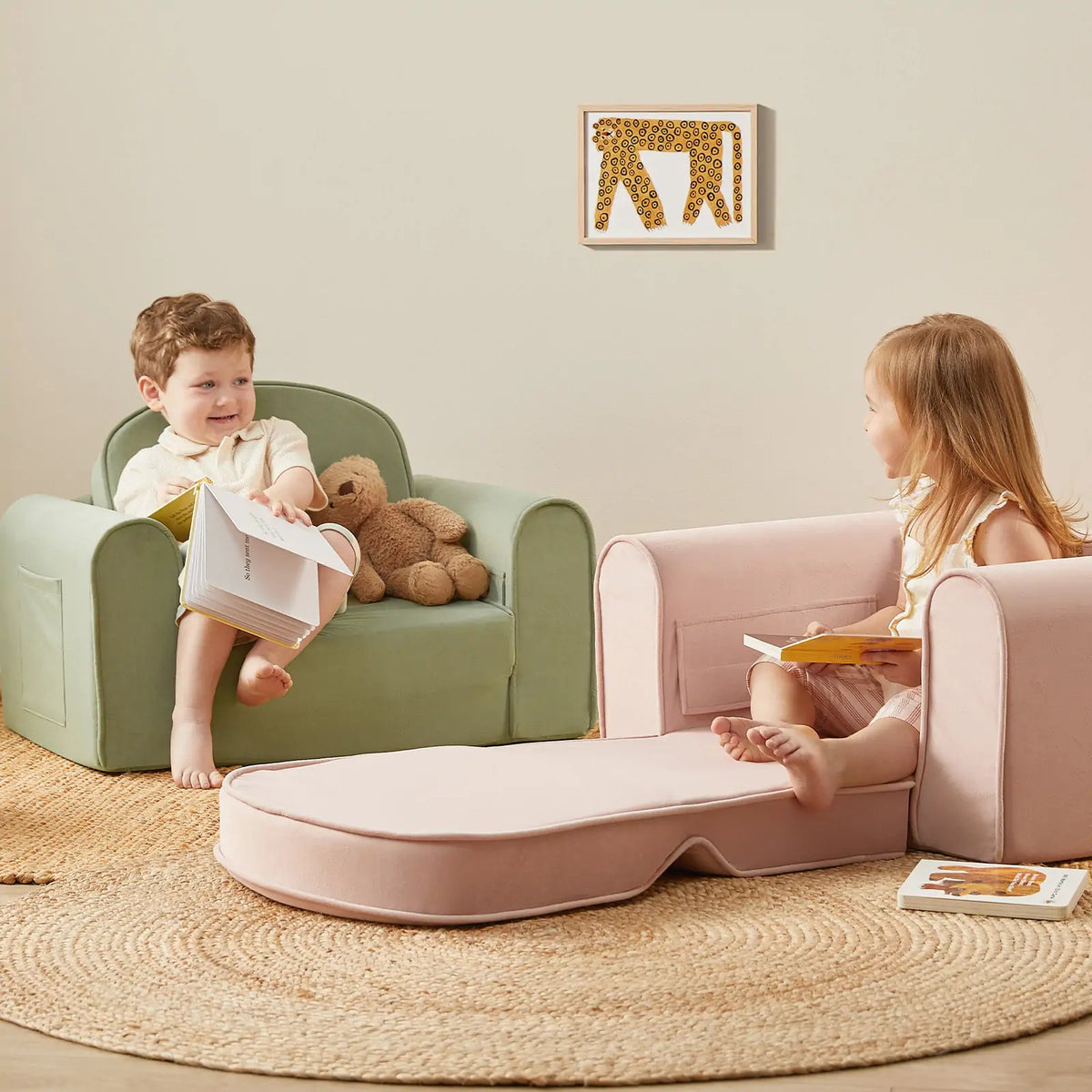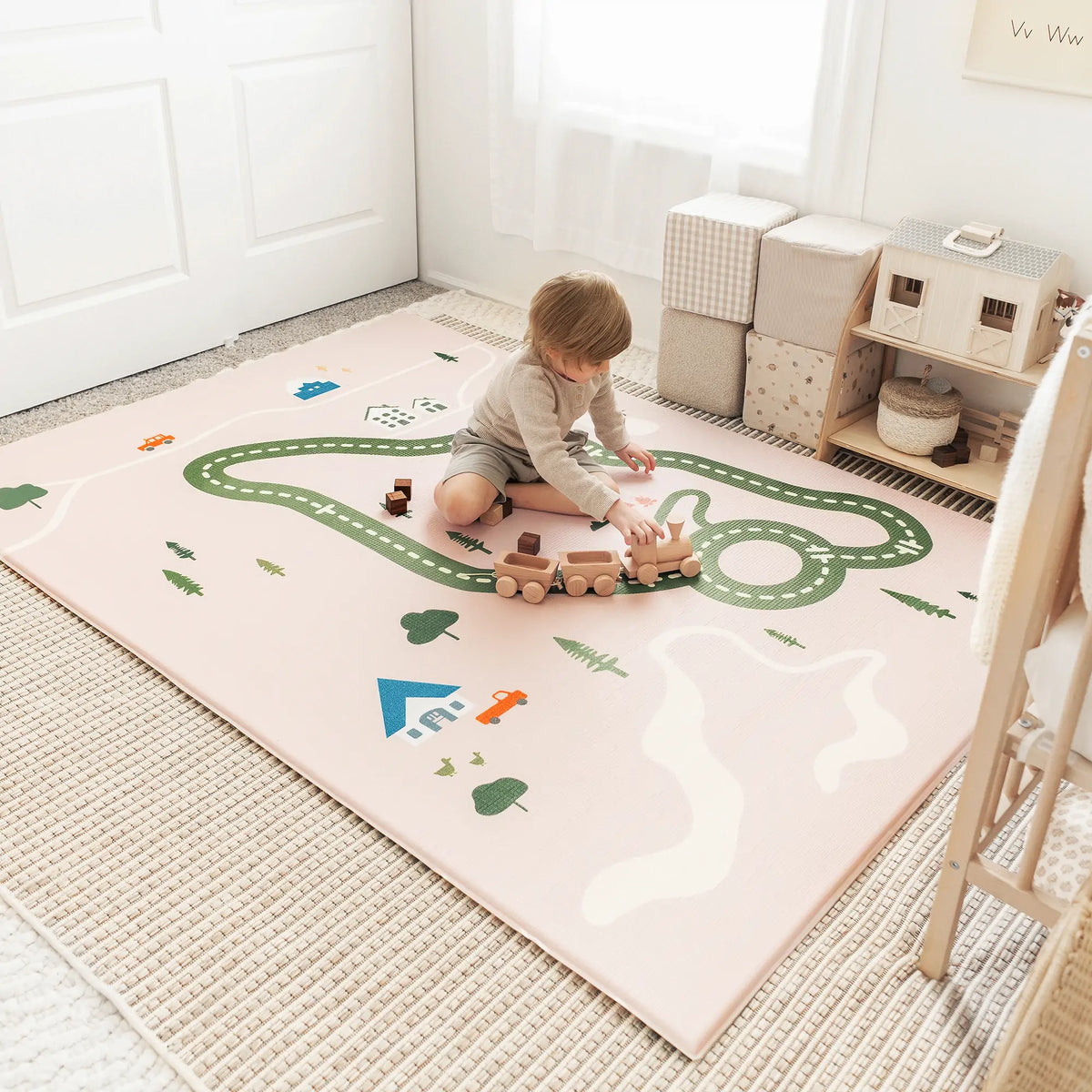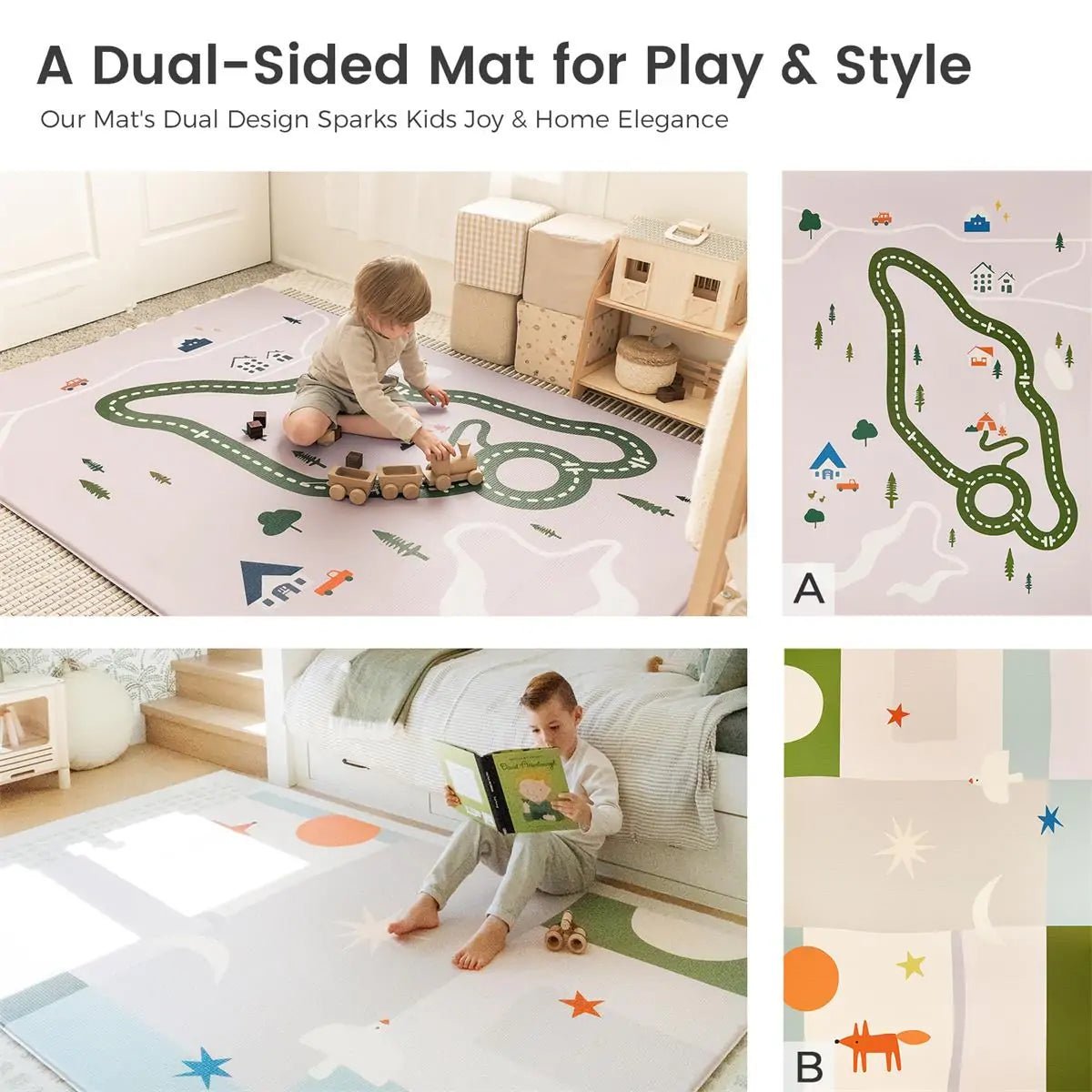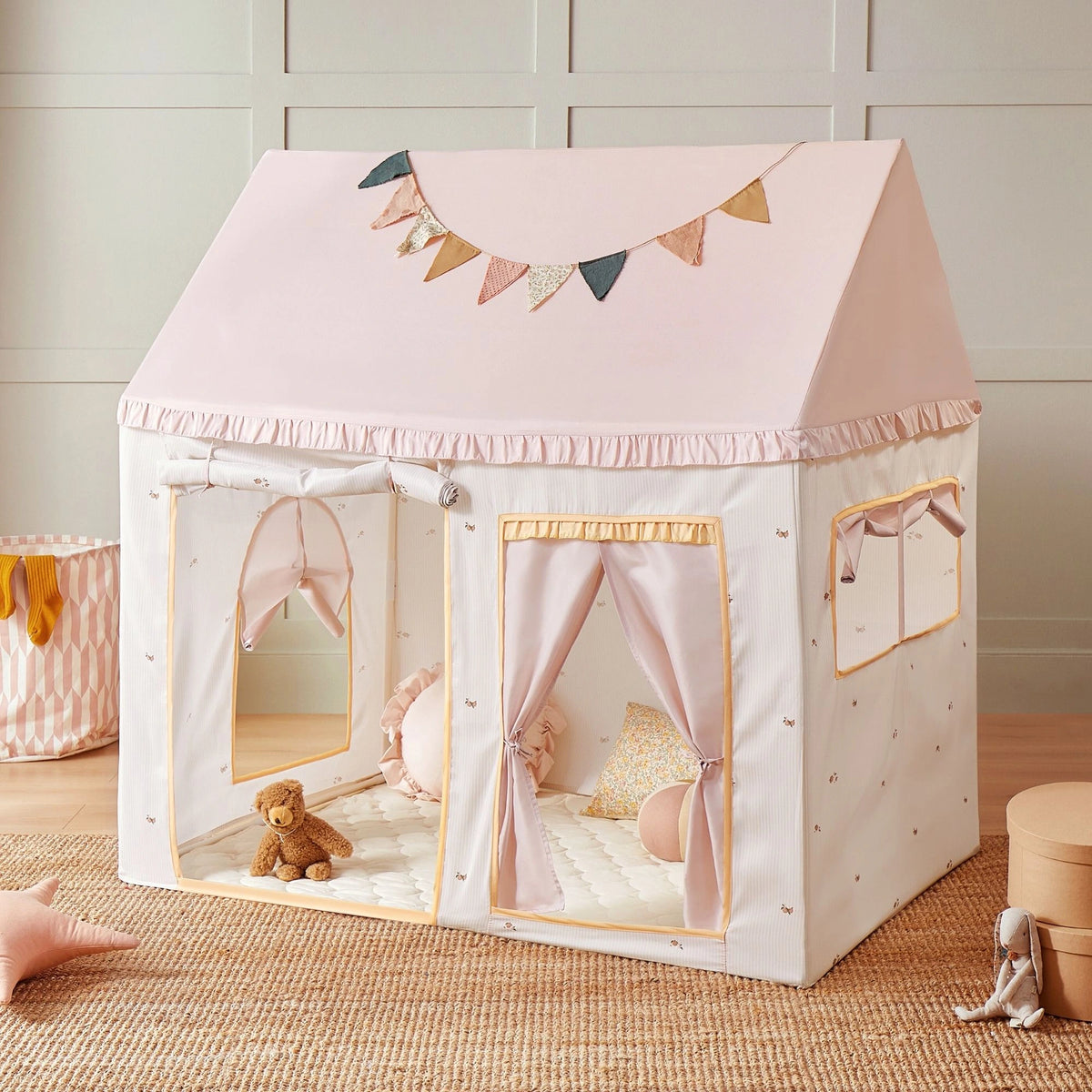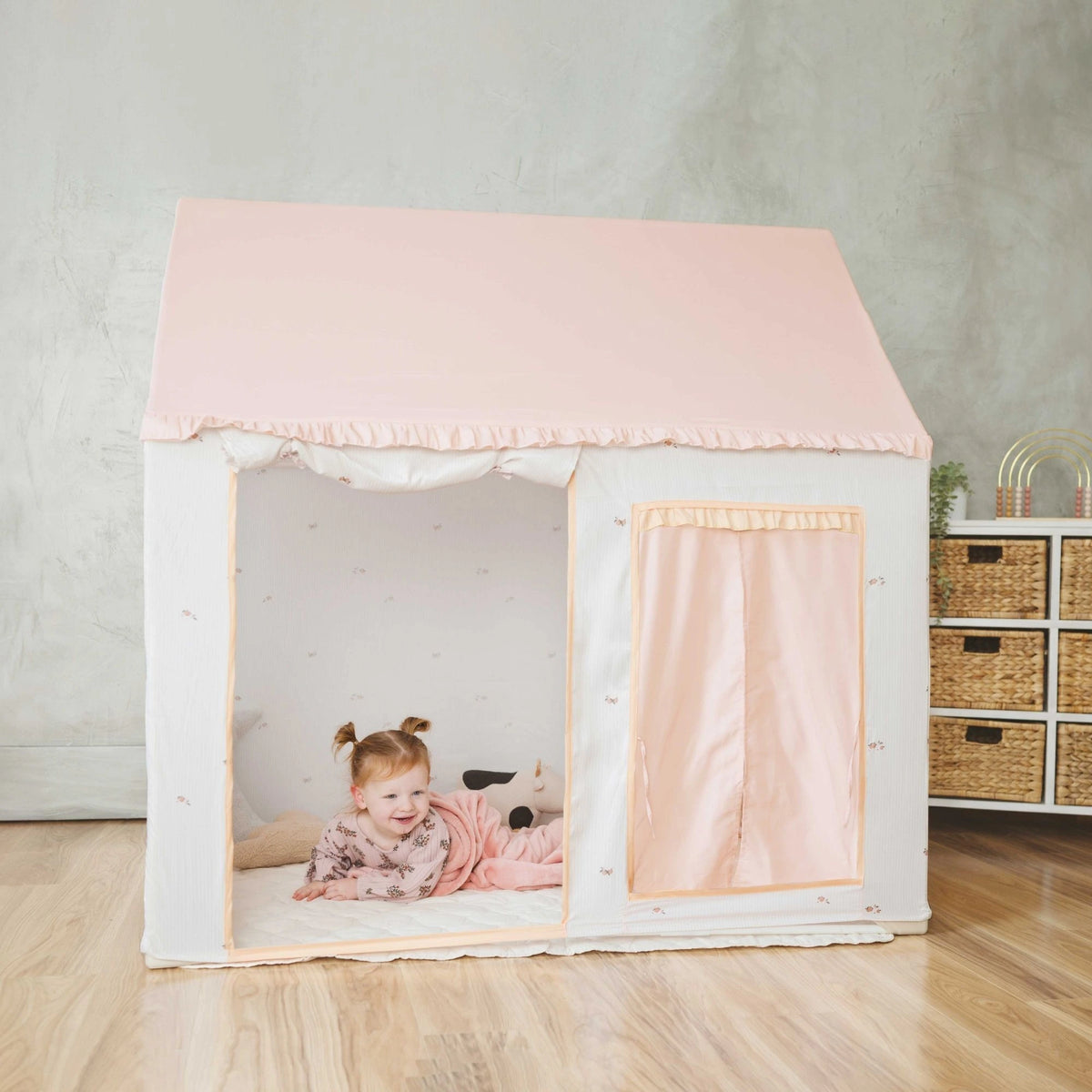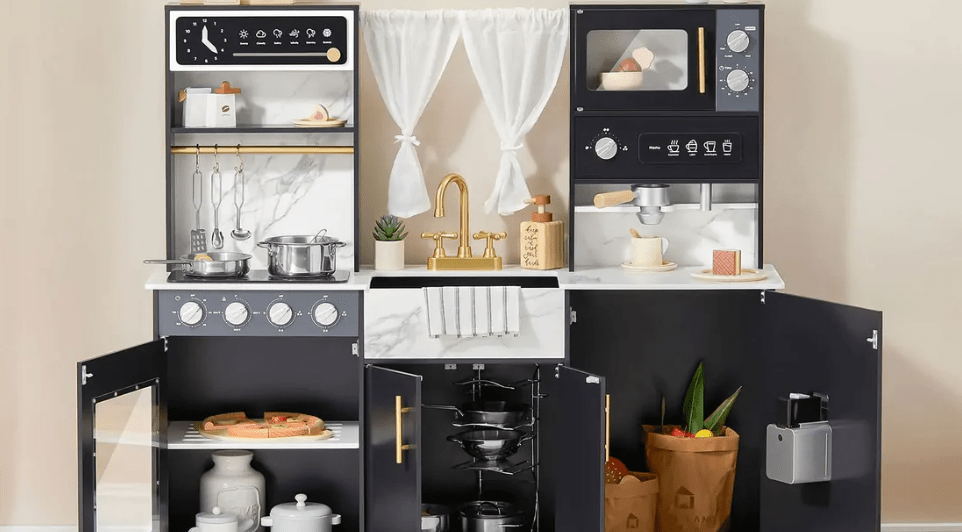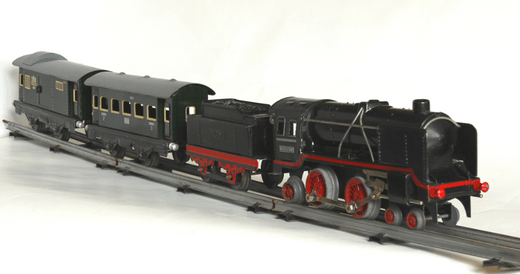Montessori toys are educational playthings that follow Maria Montessori's teaching principles. These toys promote hands-on learning, independence, and creativity in children.
Montessori teaching toys are typically made from natural materials like wood, encouraging safety and eco-friendliness. Montessori toys are designed with simplicity in mind, avoiding flashy lights and loud noises to help kids focus on their play.
These toys often engage a child's senses, aiding in the development of touch, sight, and hearing. They come in various shapes and sizes, fostering fine motor skills and hand-eye coordination. Montessori toys cover a broad range of activities, from puzzles for sorting and stacking to games for learning numbers and letters.
Are Montessori Toys Necessary?
Montessori toys are not essential, but they offer valuable benefits for a child's development. These toys align with the Montessori educational philosophy, emphasizing hands-on, self-directed learning.
Parents and caregivers can choose traditional toys as well, but Montessori toys have unique advantages. They encourage independent thinking, creativity, and problem-solving skills.
These toys are often made from natural materials, promoting safety and environmental consciousness. They're designed with simplicity to avoid overwhelming children with lights and sounds.
Montessori toys engage a child's senses and foster fine motor skills and hand-eye coordination. They cover various activities, aiding in language, math, and sensory development.
Characteristics of a Montessori toy
Montessori toys have distinctive characteristics that set them apart from conventional toys. These qualities align with Maria Montessori's educational principles and aim to enhance a child's learning experience:
Purposeful Design
Montessori toys are created with a clear educational goal in mind. For instance, a Montessori puzzle might focus on teaching shapes, while a set of counting beads could help with number recognition and basic math skills. These toys are carefully designed to align with specific developmental milestones, making them valuable tools for early learning.
Sensory Stimulation
Montessori toys excel in engaging a child's senses. They often incorporate various textures, materials like wood or fabric, and appealing colors. These sensory elements are intentionally included to stimulate a child's sensory exploration and development. For example, a wooden stacking toy might have smooth, rounded edges that invite touch and exploration.
Simplicity
One of the key features of Montessori toys is their simplicity. They avoid unnecessary distractions like flashy lights and loud noises, which can overwhelm children. Instead, Montessori toys focus on the core learning experience. This simplicity allows children to concentrate on the task at hand, promoting deeper understanding and engagement.
Hands-On Interaction
Montessori toys are designed to encourage hands-on learning. They require physical manipulation, whether it's arranging puzzle pieces, stringing beads, or sorting objects. This hands-on interaction is vital for developing fine motor skills and cognitive abilities. As children engage with these toys, they enhance their problem-solving abilities and gain a deeper understanding of concepts.
Self-Directed Learning
Montessori toys promote self-directed play. They do not come with strict instructions, allowing children to explore and discover on their own. This fosters independence, critical thinking, and decision-making skills. Children learn at their own pace, which is a fundamental principle of the Montessori method.
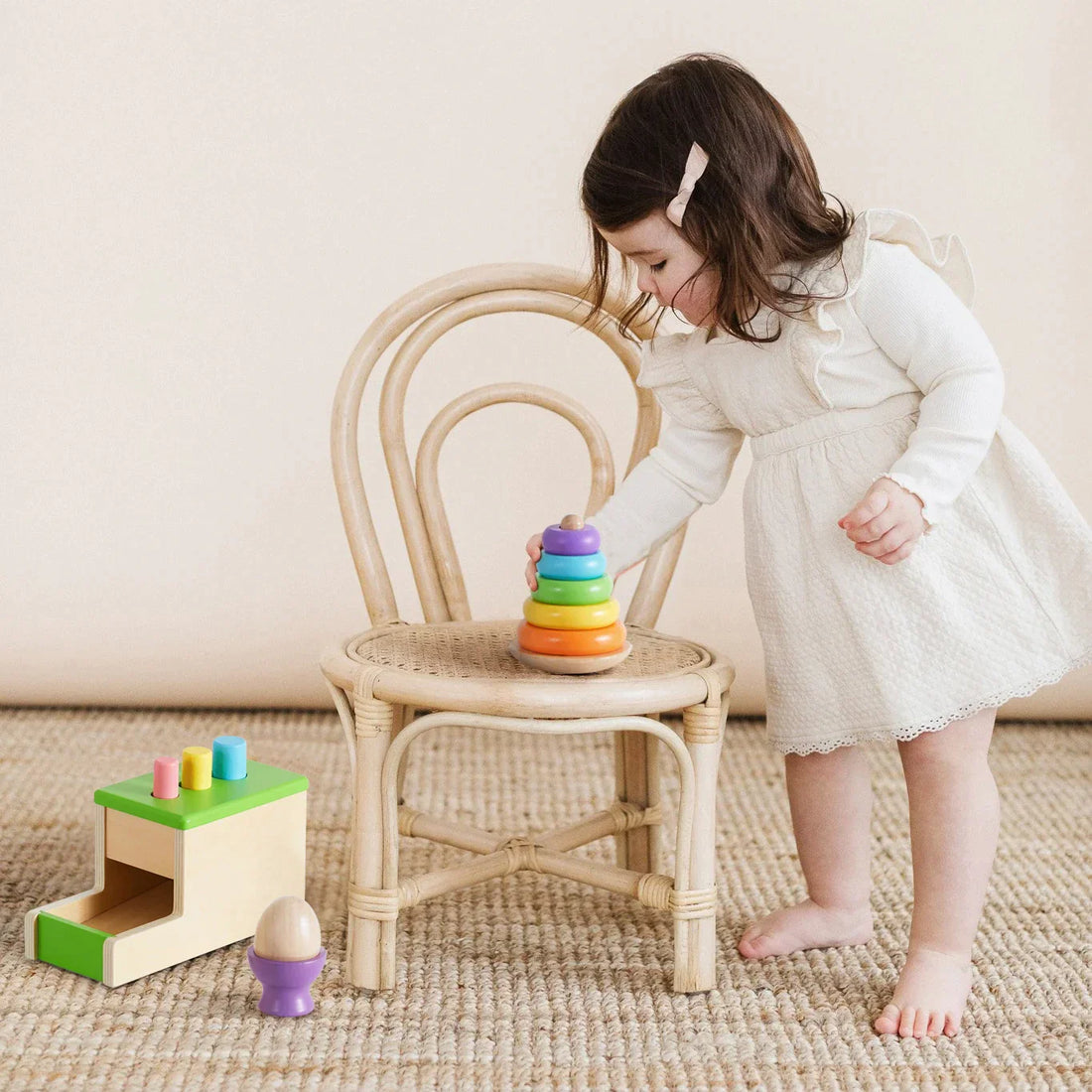
How to introduce Montessori-friendly toys?
Introducing Montessori-friendly toys to your baby can be a wonderful way to support their early development. Here are some steps to do it:
Start Early: Begin introducing Montessori-friendly toys when your baby is around three months old. Simple toys with contrasting colors and basic shapes are great for newborns.
Choose Age-Appropriate Toys: Pick toys that match your baby's developmental stage. For instance, high-contrast mobiles are suitable for infants, while older babies might enjoy wooden rattles or soft fabric books.
Limit Choices: Avoid overwhelming your baby with too many toys at once. Instead, rotate a small selection of toys every week or so to keep their interest piqued.
Create a Prepared Environment: Set up a safe and comfortable space for your baby to explore these toys. A soft mat on the floor and a low shelf to store toys within their reach are ideal.
Observe and Follow Their Interests: Pay attention to what captivates your baby the most. If they show interest in a specific toy, give them more opportunities to explore it.
Encourage Independence: As your baby grows, allow them to choose and handle toys independently. This fosters a sense of autonomy and decision-making skills.
Demonstrate Proper Use: Show your baby how to use the toys without taking over their play. For example, demonstrate how to shake a rattle or turn the pages of a book.
Use Real-Life Objects: Include everyday items like wooden spoons or soft brushes as playthings. These can be as engaging as store-bought toys and help babies connect with the real world.
Sensory Exploration: Choose toys that offer various sensory experiences, such as toys with different textures, sounds, or scents. This aids in sensory development.
Engage in Play Together: Spend quality playtime with your baby using Montessori toys. This interaction not only strengthens your bond but also helps them learn through observation.
Rotate and Refresh: Keep an eye on your baby's changing interests and skills. Rotate toys accordingly and introduce new ones to keep their curiosity alive.
Pros & Cons Of Montessori Toys
Pros of Montessori Toys:
- Hands-On Learning: Montessori toys promote hands-on exploration and interaction, which is crucial for a child's development.
- Independence: They encourage independent play and decision-making, fostering self-confidence and problem-solving skills.
- Sensory Development: Montessori toys often engage multiple senses, aiding in sensory development and cognitive growth.
- Focus on Real-Life Skills: Many Montessori toys mimic real-life objects, helping children connect with their environment and develop practical skills.
- Long-Lasting: These toys are typically durable and made from natural materials, making them eco-friendly and cost-effective.
- Stimulate Creativity: Montessori toys encourage creativity and imagination, allowing children to explore and express themselves freely.
- Holistic Development: They support well-rounded development, covering cognitive, emotional, and physical aspects.
Cons of Montessori Toys:
- Limited Variety: Montessori toys may not cover the same wide range of themes and interests as commercial toys.
- Higher Cost: Some Montessori toys can be pricier than mass-produced alternatives due to their quality materials and craftsmanship.
- Less Immediate Gratification: They often require more effort and time for children to fully engage and learn from them.
- Not Always Accessible: Montessori toys might not be readily available in all stores, requiring extra effort to find them.
- Minimal Entertainment Value: Some children may find Montessori toys less entertaining compared to toys with lights and sounds.
- Parental Guidance: Parents may need to provide more guidance initially to help children understand how to use these toys effectively.
- Transition Challenges: If a child is accustomed to traditional toys, the shift to Montessori toys may take time and patience.
Where can I find Montessori toys?
You can find Montessori toys at various places, both online and in physical stores. One great online option is tinylandus.com, which offers a wide selection of Montessori-inspired toys. Their website provides a convenient way to browse and purchase these toys from the comfort of your home. They often feature eco-friendly and sensory-engaging options that align with Montessori principles. Additionally, you can explore local toy stores, educational supply shops, and even handmade toy markets to discover Montessori toys that cater to your child's learning needs. With tinylandus.com and other sources, you can easily access these valuable educational tools.
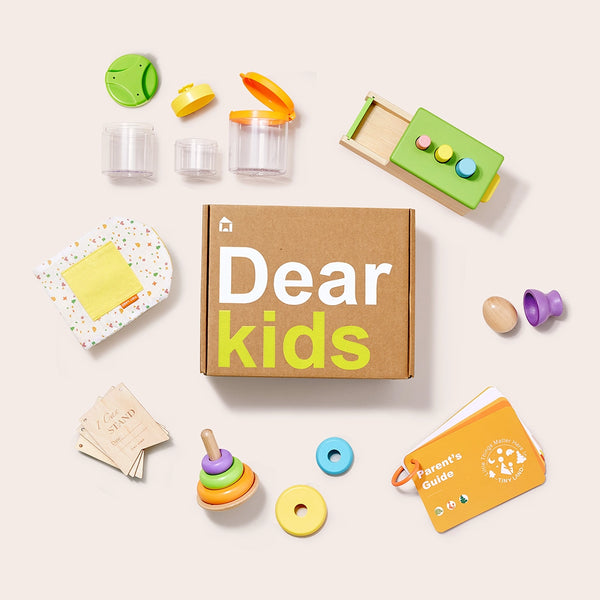
FAQs
Are Montessori toys suitable for all age groups of children?
Yes, Montessori toys come in various levels of complexity, making them suitable for children of different ages and developmental stages. You can find options for infants, toddlers, and older kids.
How do Montessori toys benefit a child's development?
Montessori toys promote sensory stimulation, fine motor skills, creativity, and independent learning. They also encourage problem-solving and decision-making, fostering well-rounded development.
How can I incorporate Montessori toys into my child's daily routine?
Create a dedicated space for play, rotate the toys regularly, and observe your child's interests. Offer guidance initially and let them explore independently. Use these toys as tools for learning, not just playthings.


